

November 8 - December 7, 2024
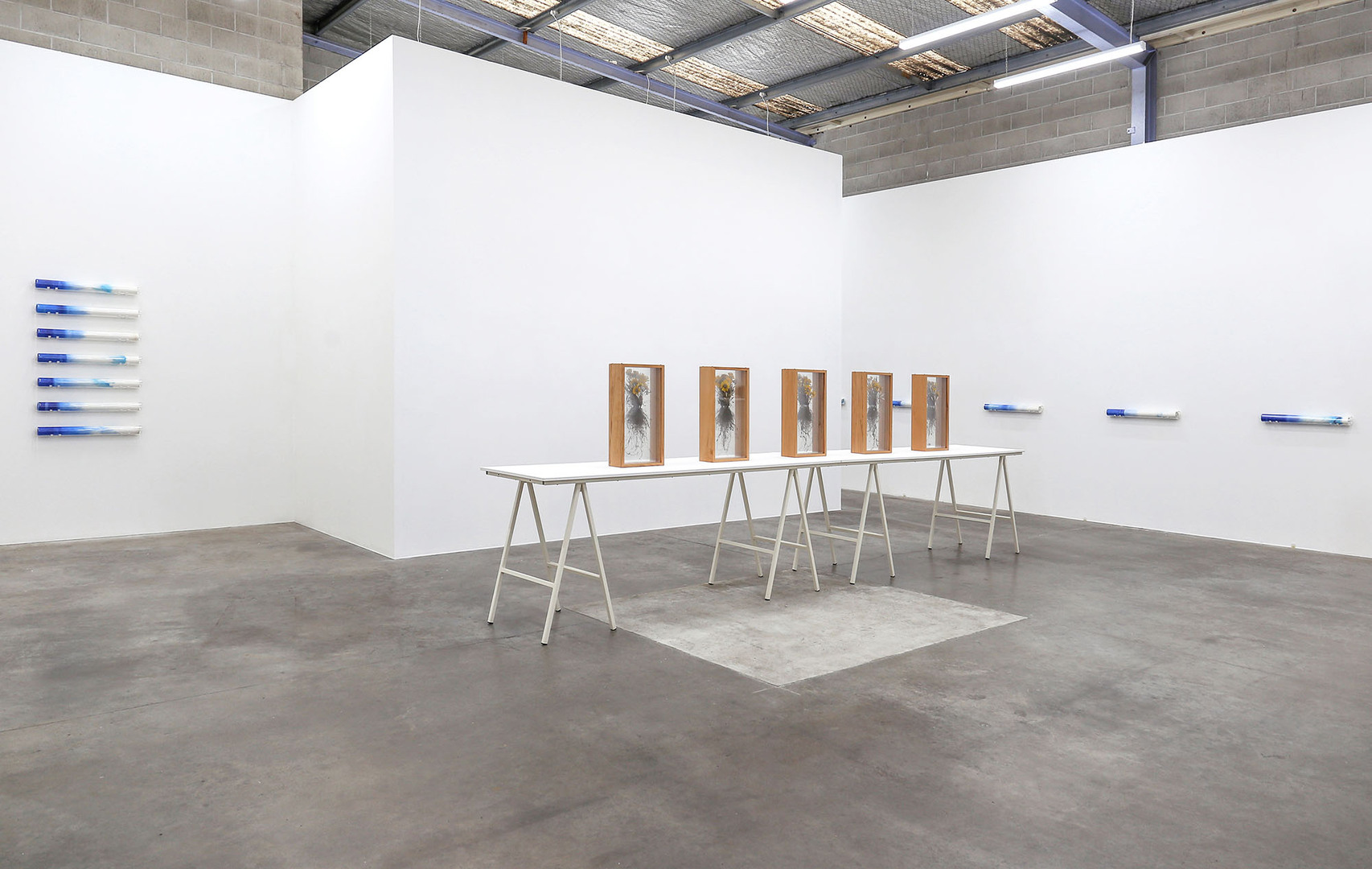
front gallery - installation view
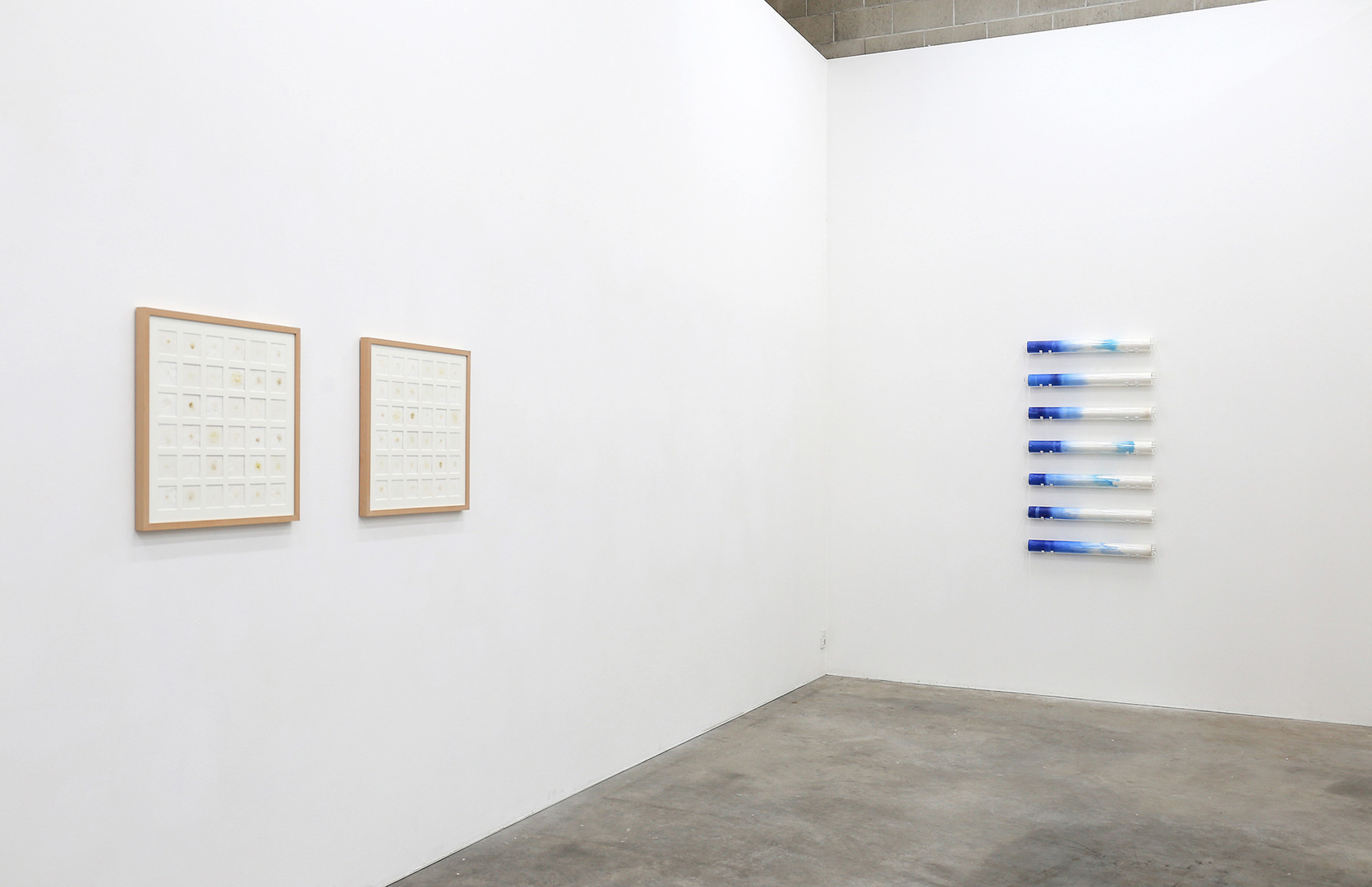
front gallery - installation view
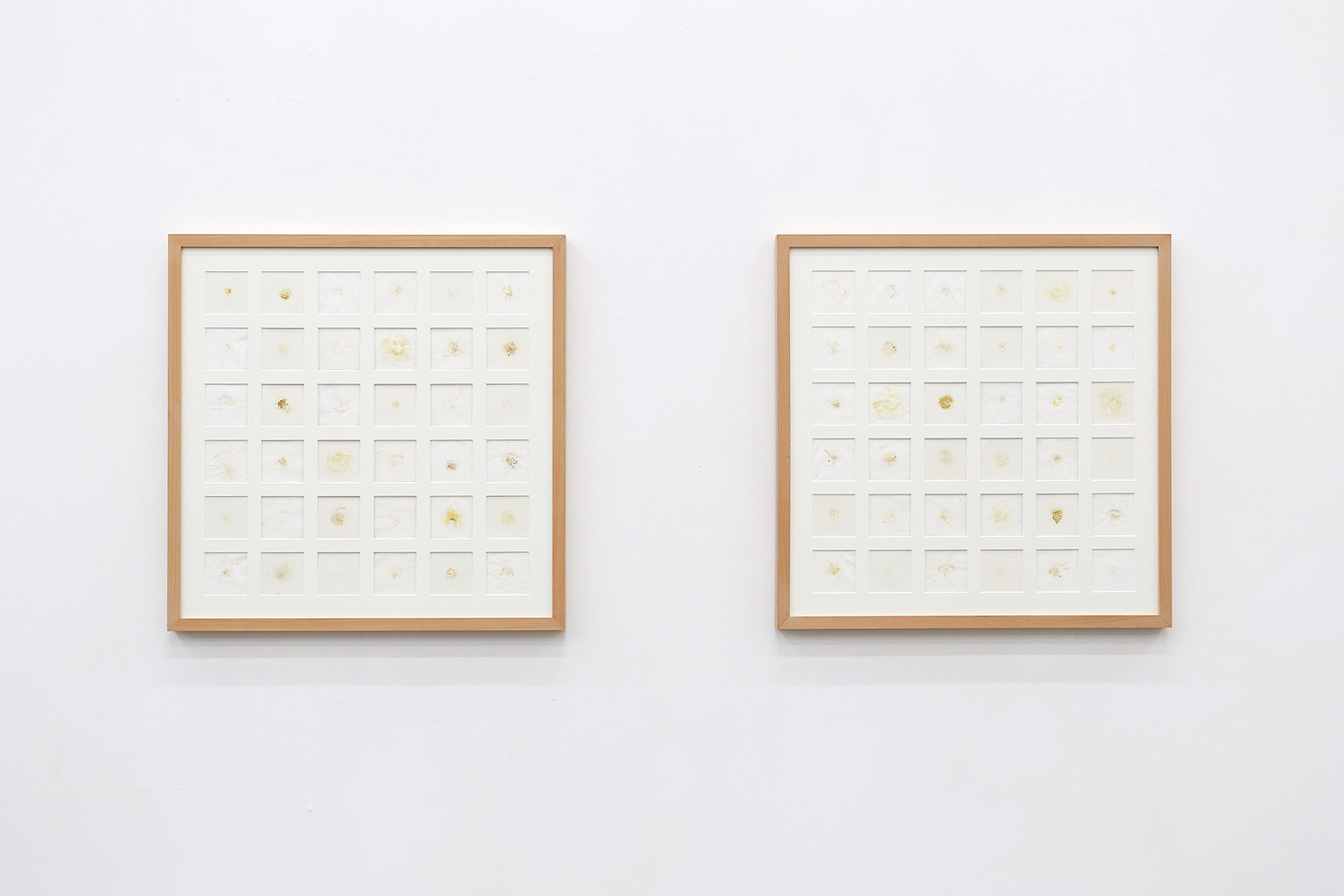
front gallery - installation view
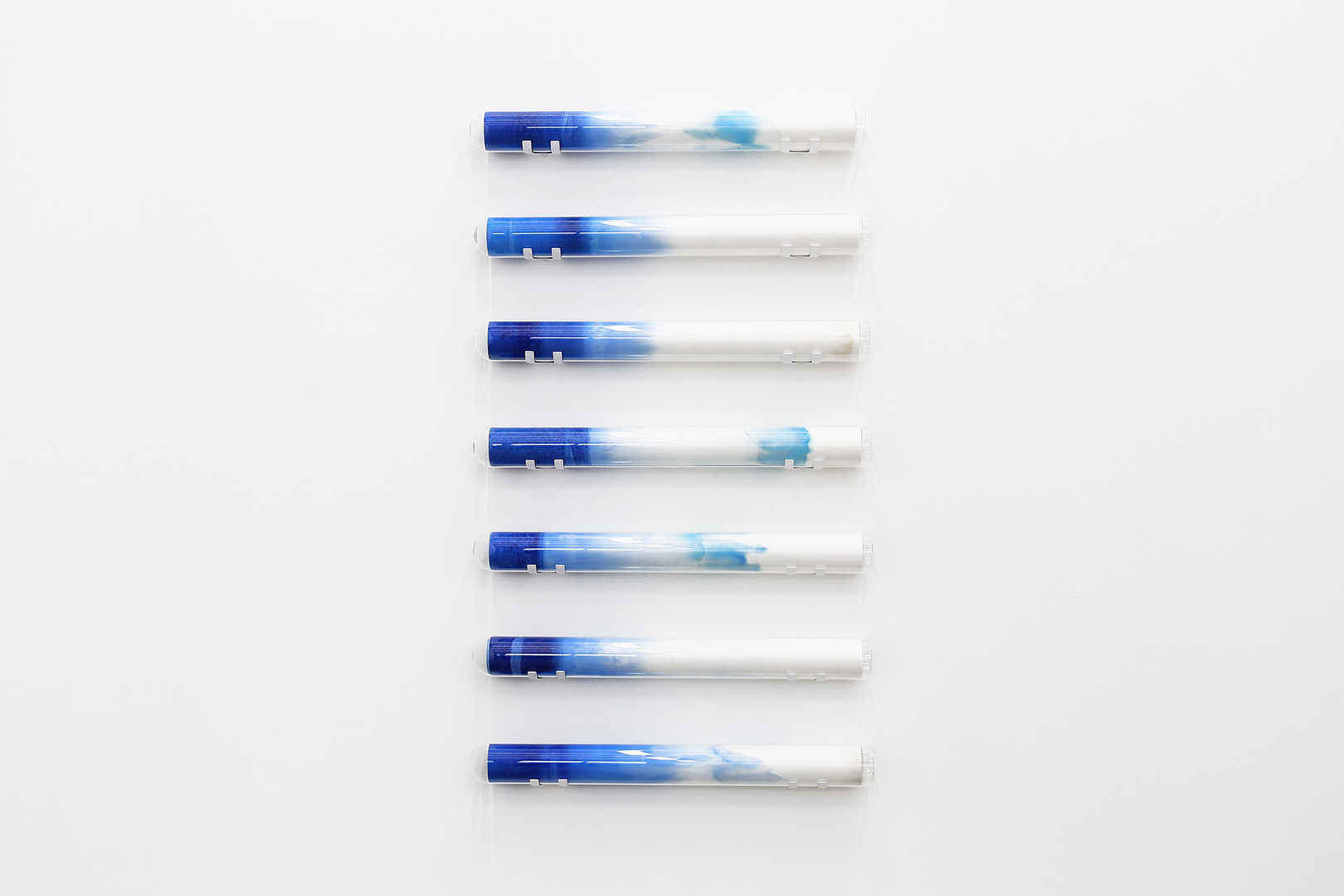
front gallery - installation view
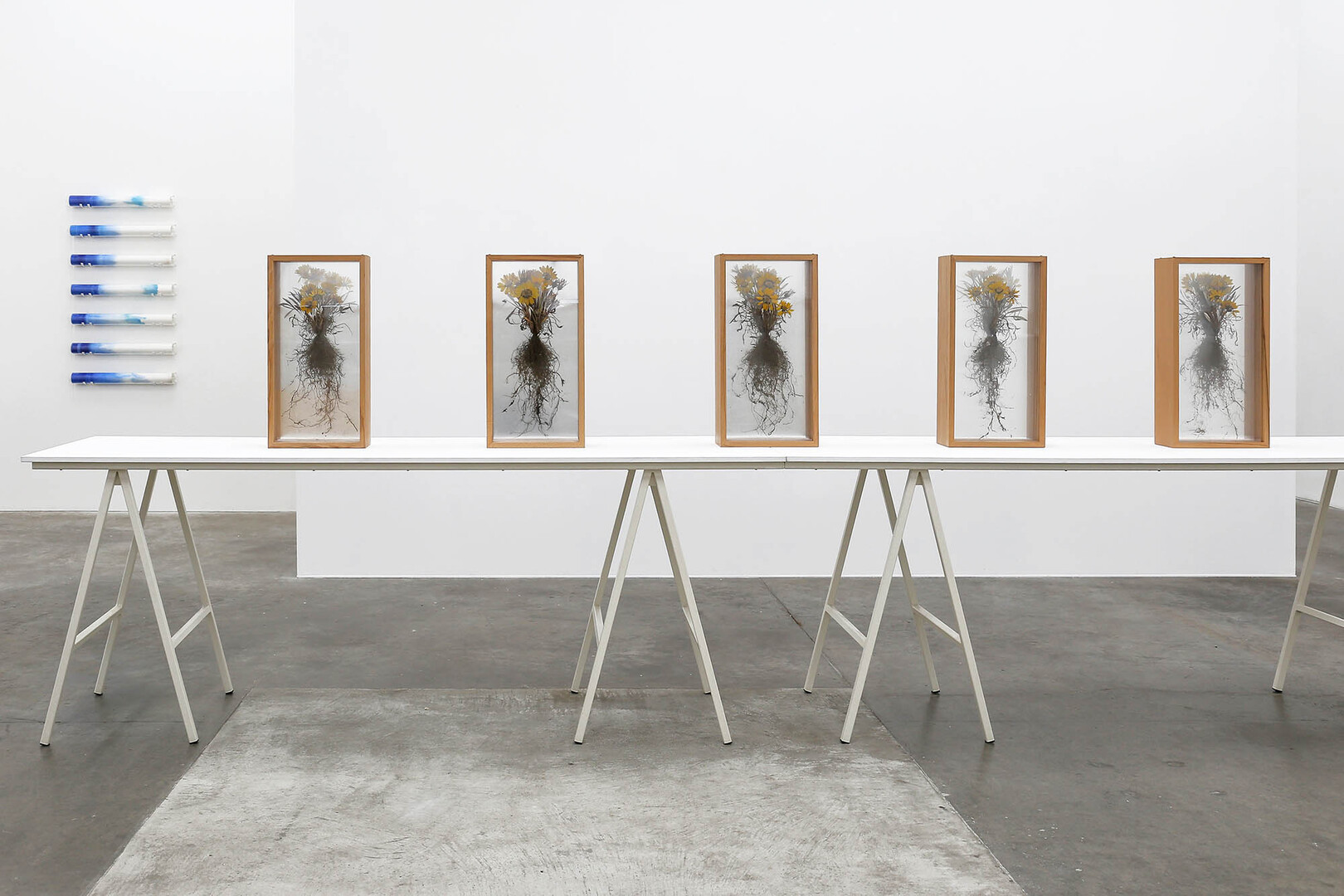
front gallery - installation view
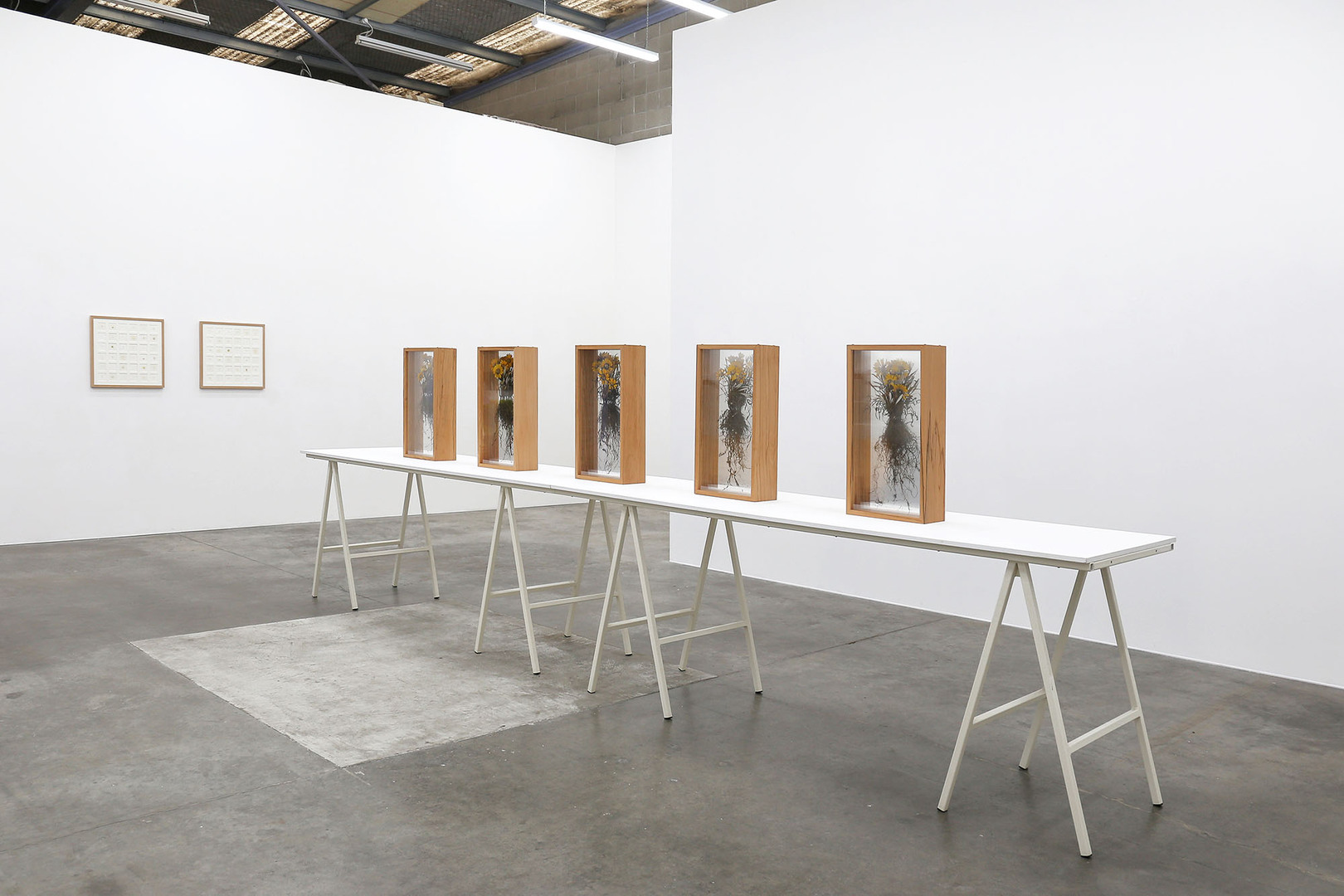
front gallery - installation view
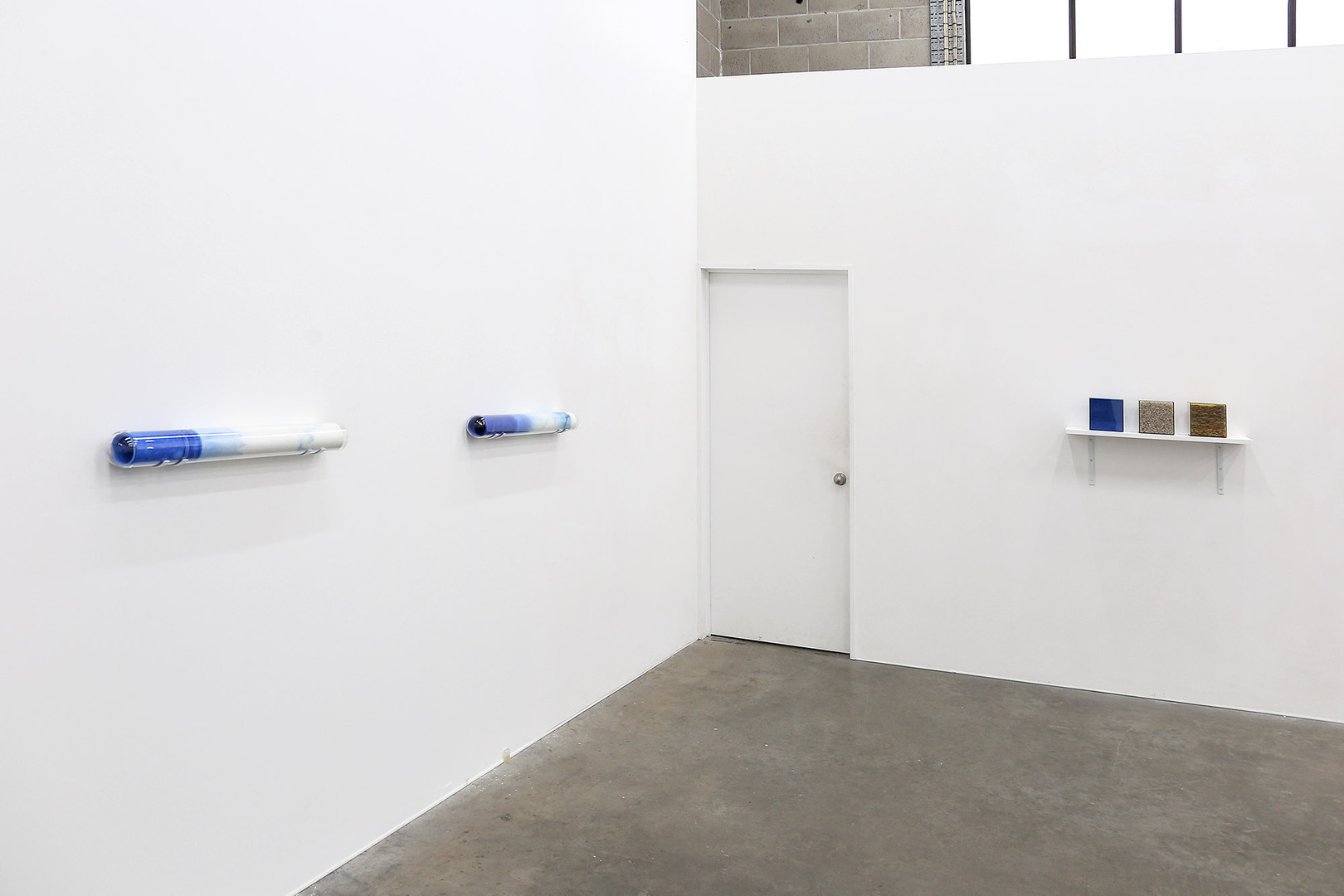
front gallery - installation view
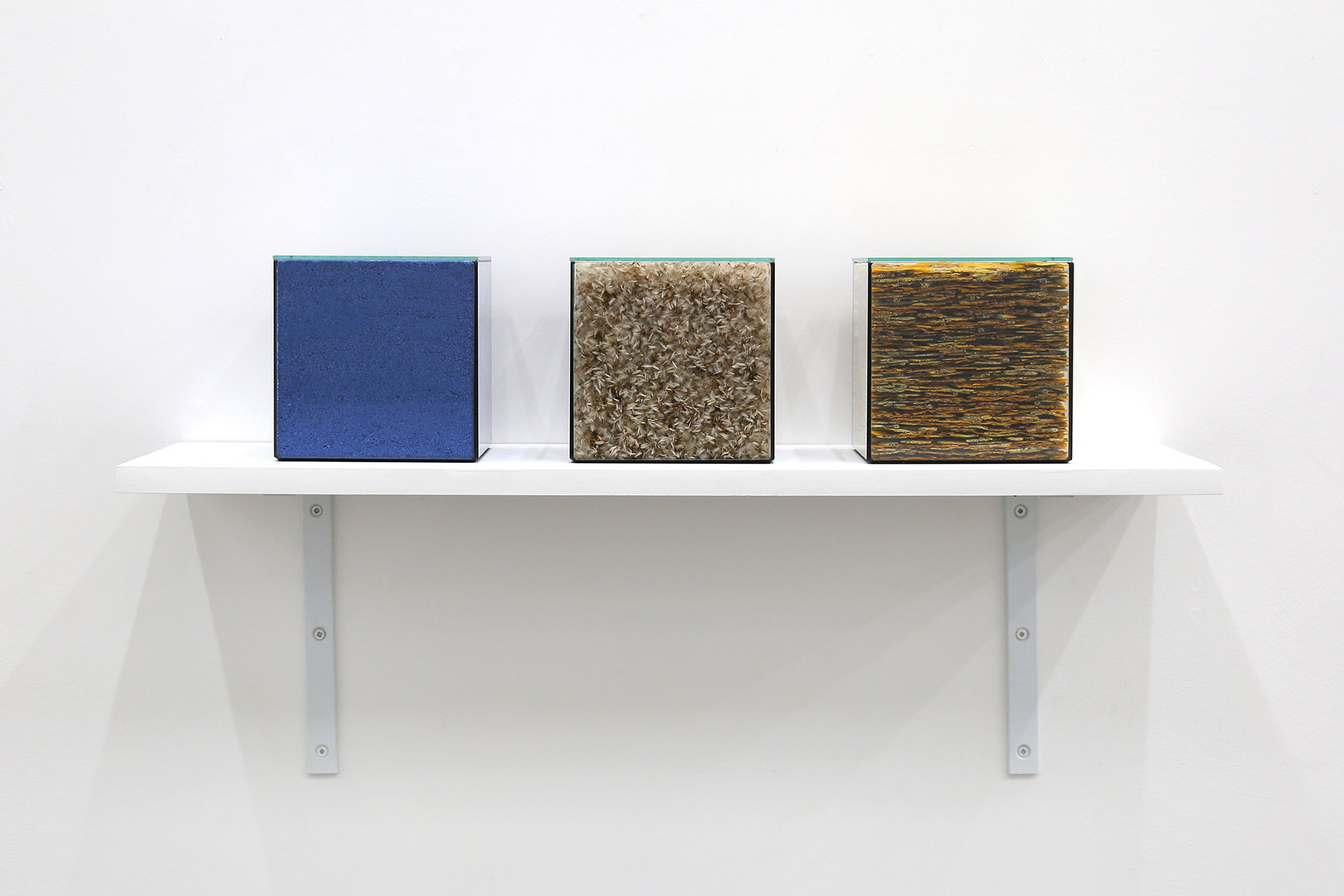
front gallery - installation view
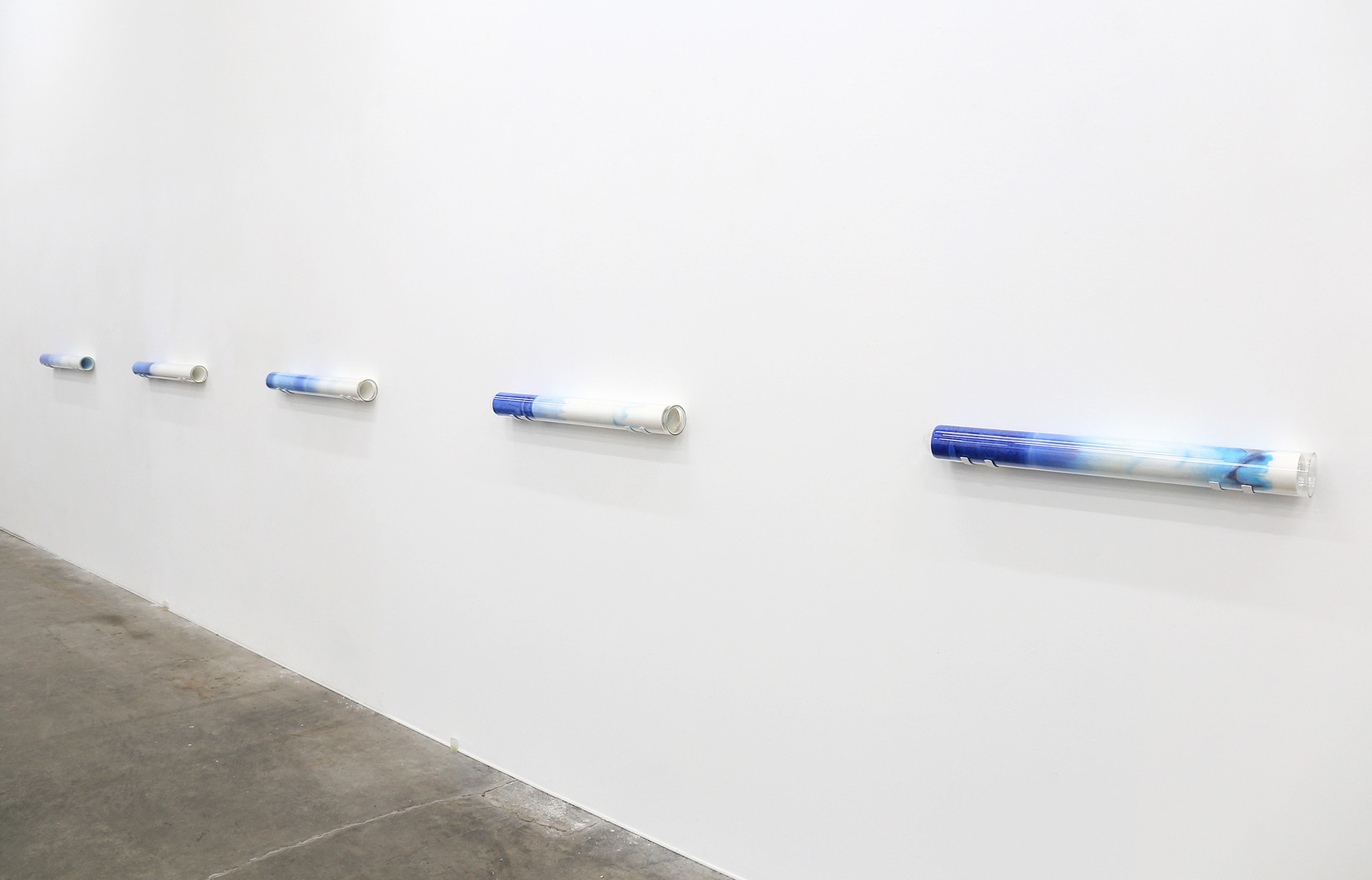
front gallery - installation view
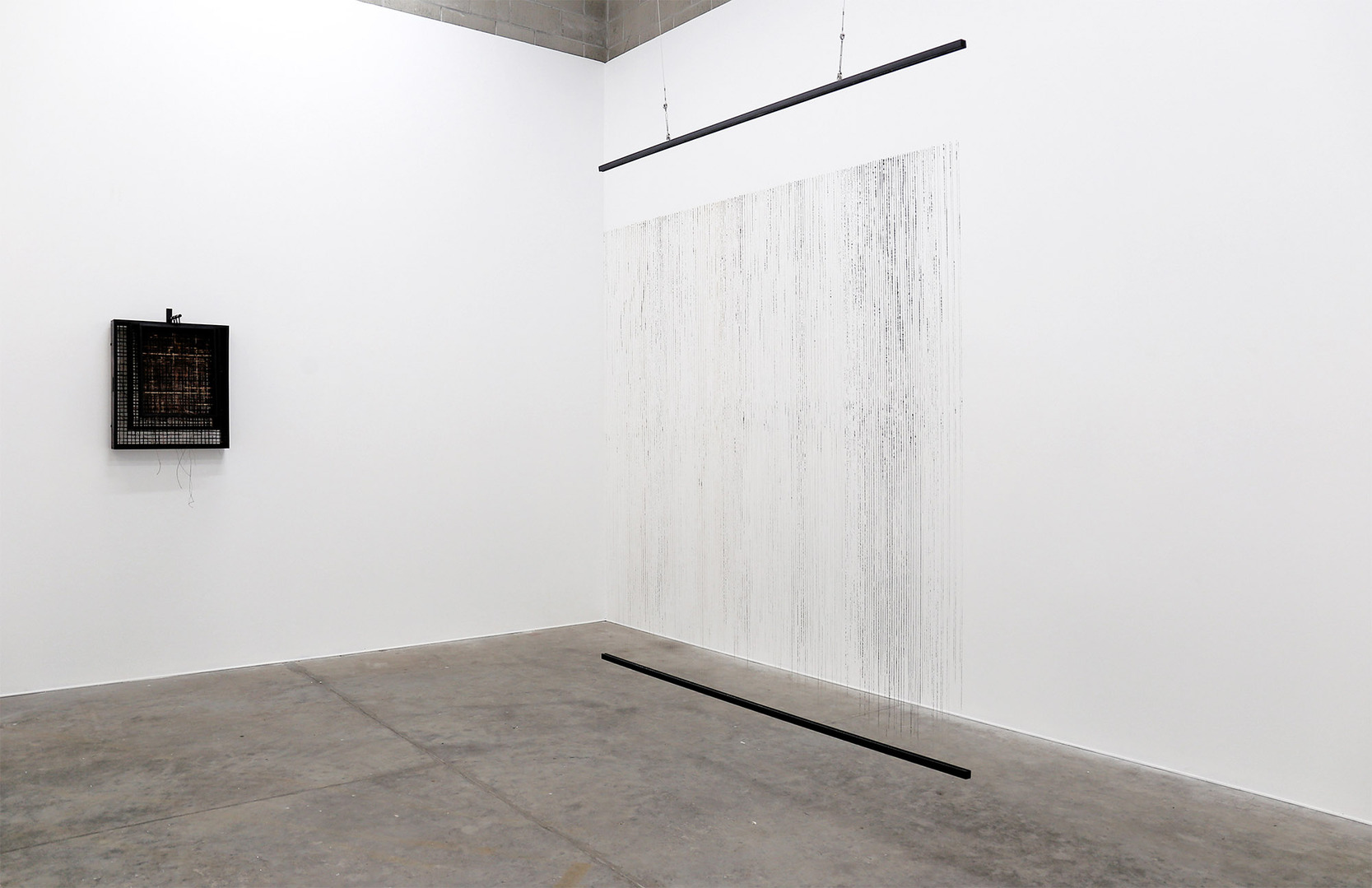
back gallery - installation view
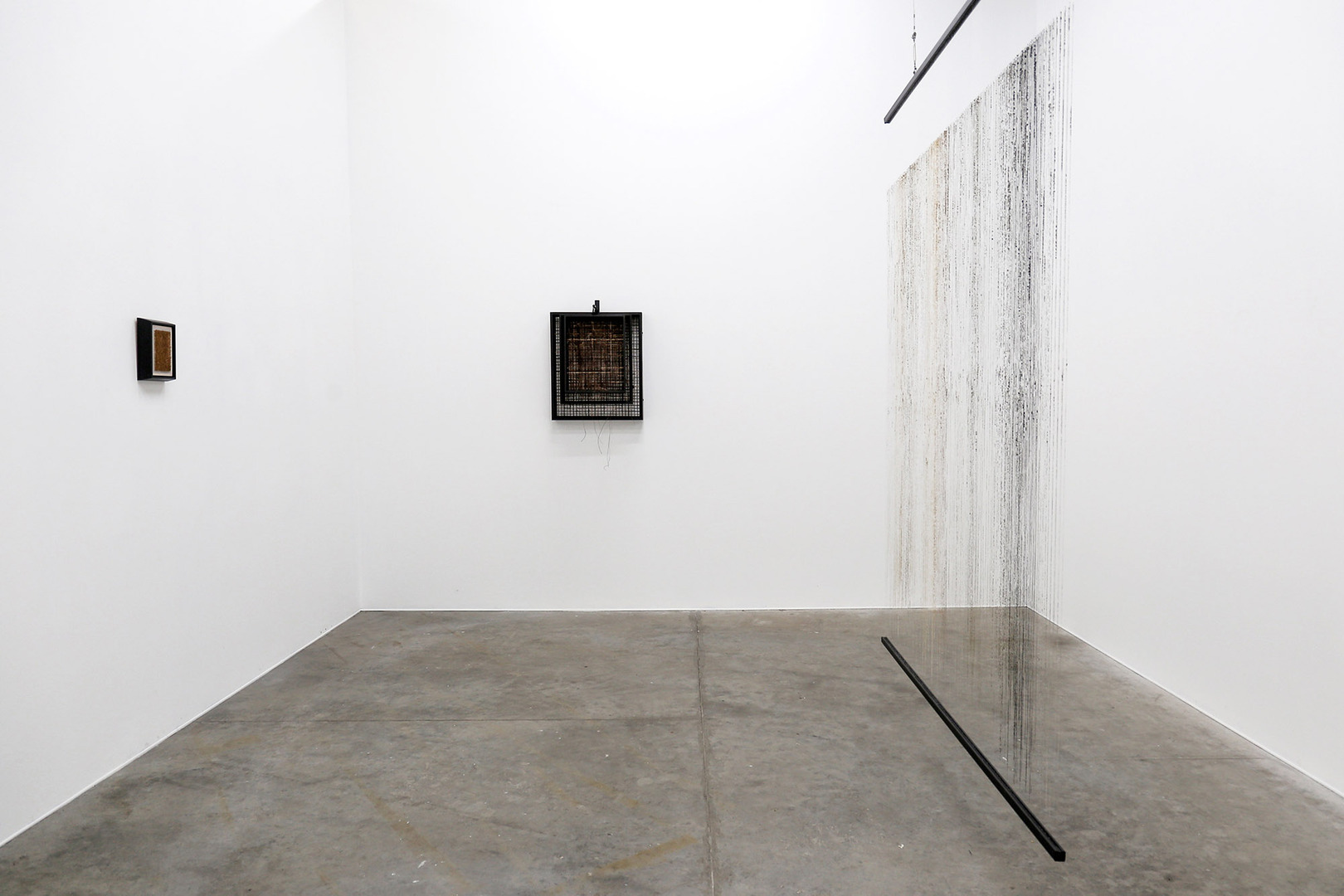
back gallery - installation view
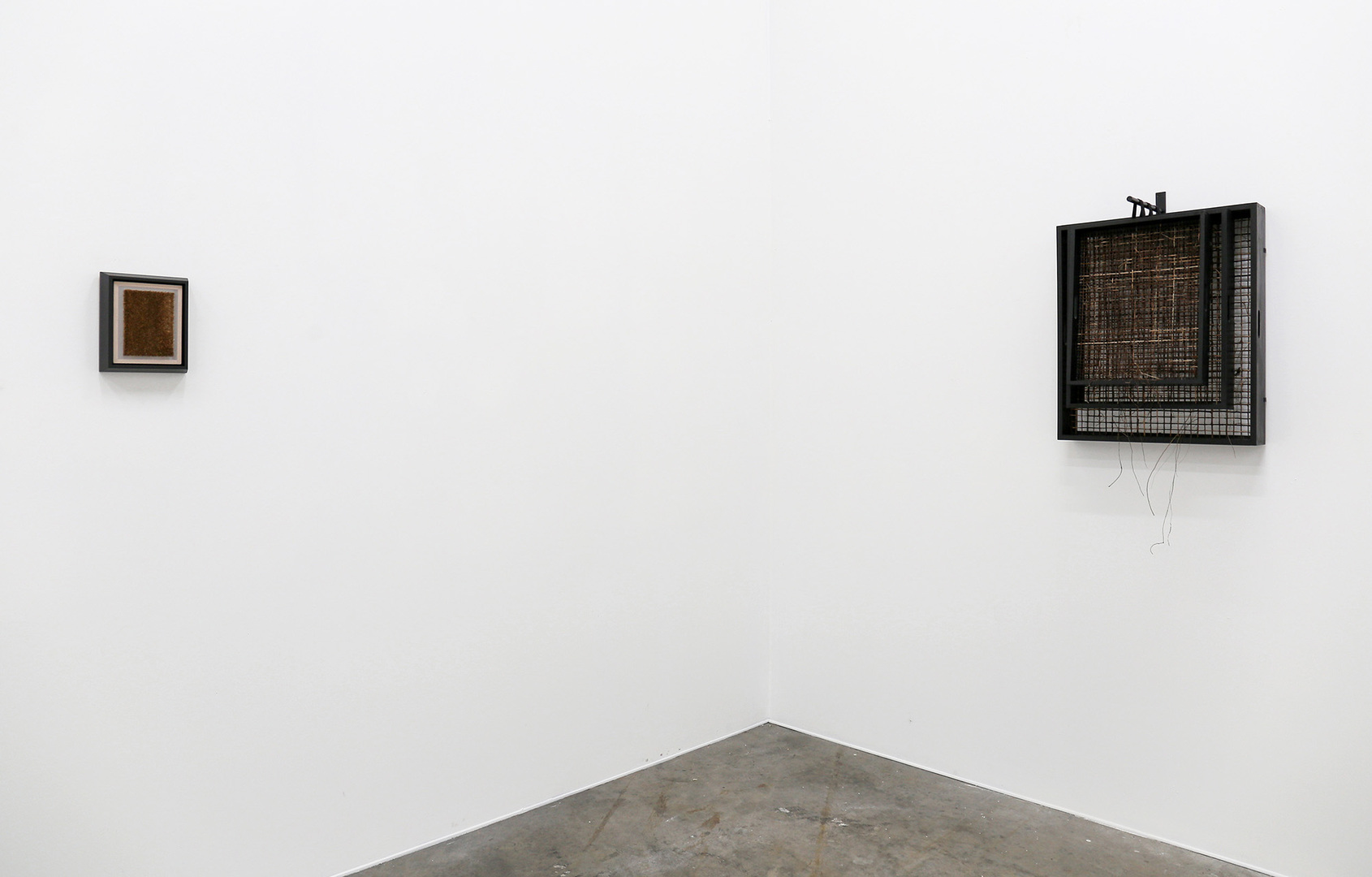
back gallery - installation view
We hear a lot about the delicate balance of things, how the loss of equilibrium in different ecologies increases the fragility of many ecosystems. So what is a sculptor to do? A sculptor with a keen sense of their immediate environment that is. (Macleod lives in the Christchurch beach suburb of New Brighton.) Material choice be a good place to start.
There is a small work in Macleod’s exhibition vehicles for the unsung that is key, and it is simply called Flowers. Salt. Seed. The colours of salt and flowers, along with the texture of seeds are important in this show. The salt is blue, having been boiled off from sea water and coloured with blue water tracking dye. Throughout the exhibition, rolled scrolls of blotting paper dunked in sea water several times over and presented in glass tubes both horizontally and vertically, capture movement - the rise and rise of sea water. Individually, these forms repeated across the gallery space become a powerful calibration of beauty, control and threat.
Then, to go back to the key work, there are flowers and seeds. They are the invasive dune species Gazania and Lupin. We see their pollens and those from other dune species in the grid-based intimacy of Coast Sample (Yellows) #1 & #2. In Field Study #1 we stand before hours of intricate labour – thousands of Gazania New Day seeds tweezered, then glued into place in the weave of a small stretched rectangular gauze. In Flowers. Salt. Seed, Gazania and Lupin petals are layered with tender care. In a tour-de-force of flower pressing, the flowerheads, stem and full root systems of Gazania New Day plants are compressed seven deep in a row of standing specimen boxes. And on fine trestles at body height, Earth Binders #1 - #5 is a presentation potently beautiful and brutal at the same time.
Lighter in touch, The Fall #3 is a suspended work in the back gallery. The vulnerability of thirty-six different beaches to erosion, invasive species and human exploitation is the subject of this work (with the help of sand samples gathered from around Aotearoa by the hands of others). Beaches are delicate ecosystems always gently in flux. The fact that this work changes visually as you walk around it reflects this flux. From some angles it almost (optically) disappears; while from others it appears more substantial, even dense. And given its incredibly fine construction – nylon strands coated in glue and beach sand (some black, some gold), each held vertically between aluminium runners top and bottom - the fragility of both subject and object is not just enchanting, it is deeply telling. Melissa Macleod’s sculpture is full of such consideration and care. This show is poised, elegant, wonderfully precise and utterly on point.
JS
Selected works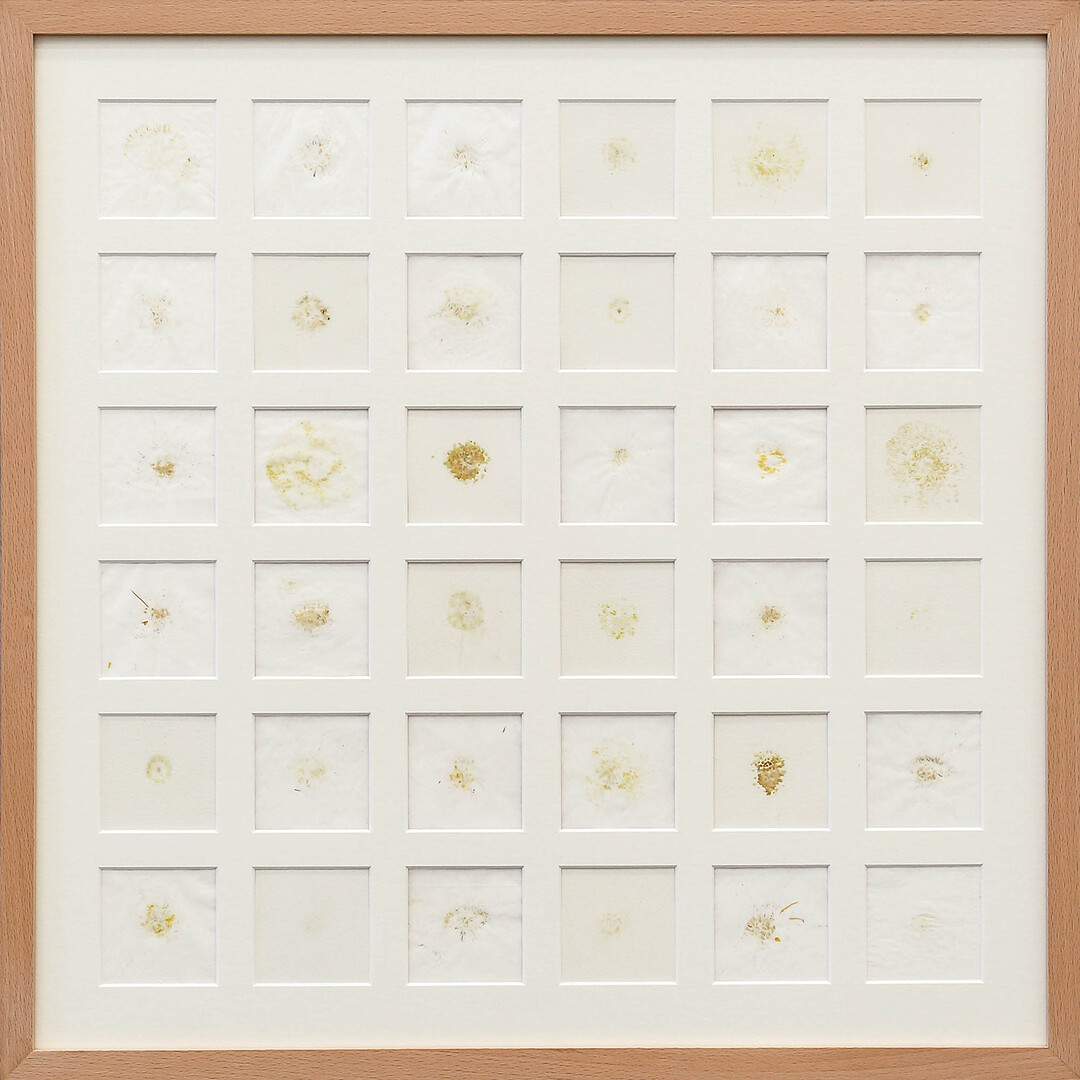
Coast Sample (Yellows) #2
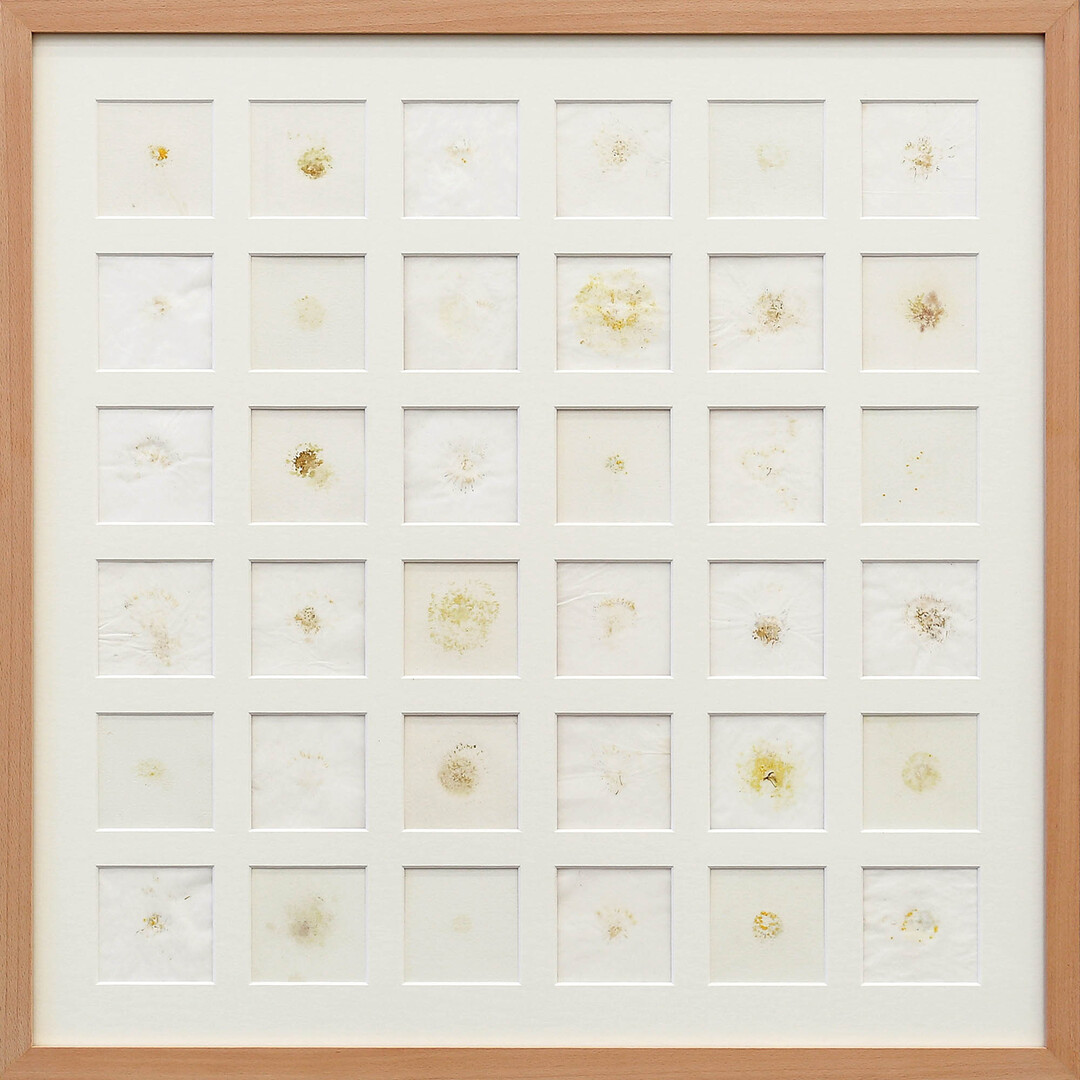
Coast Sample (Yellows) #1

Coast Samples (Yellow) #1 - detail
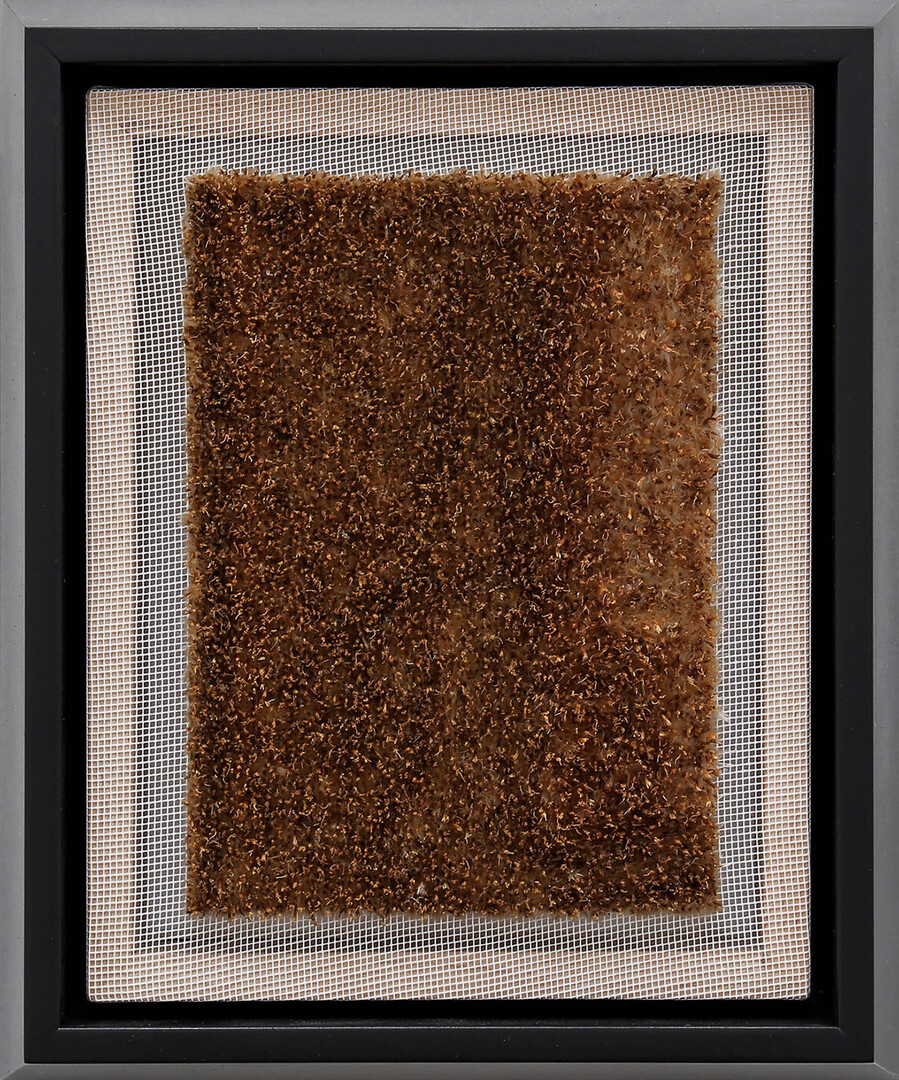
Field Study #1
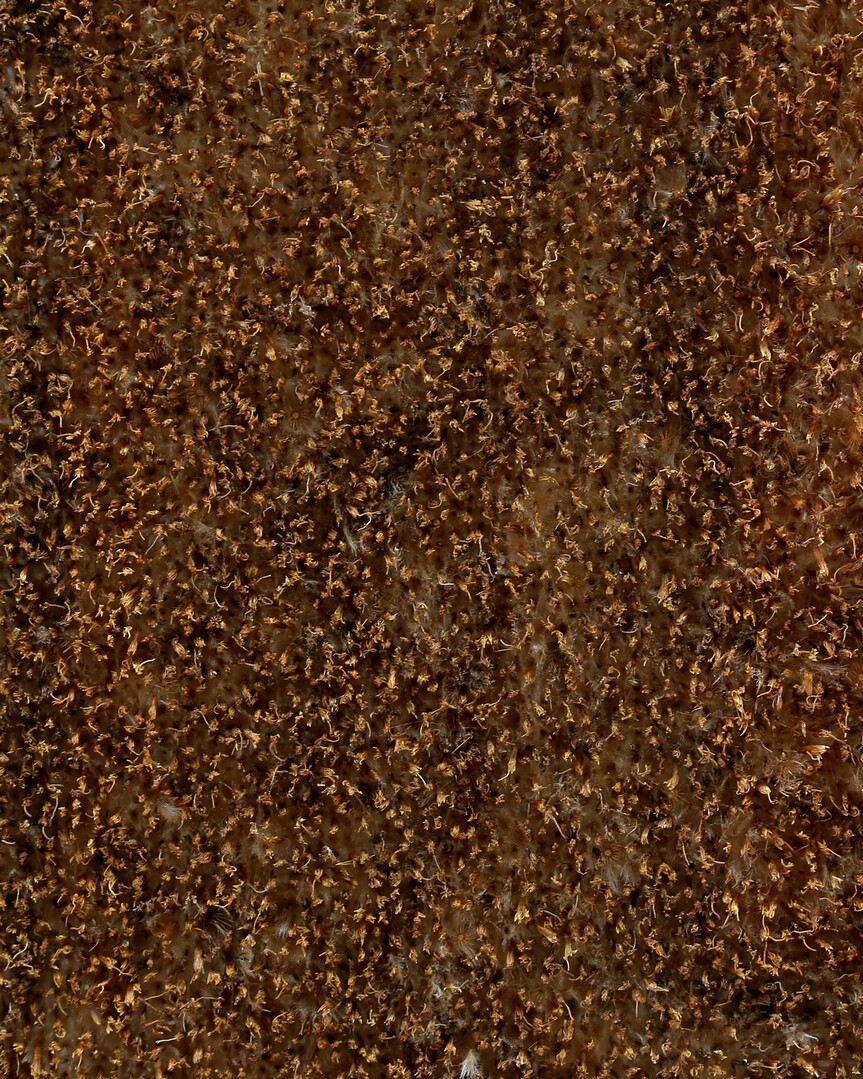
Field Study #1 - detail
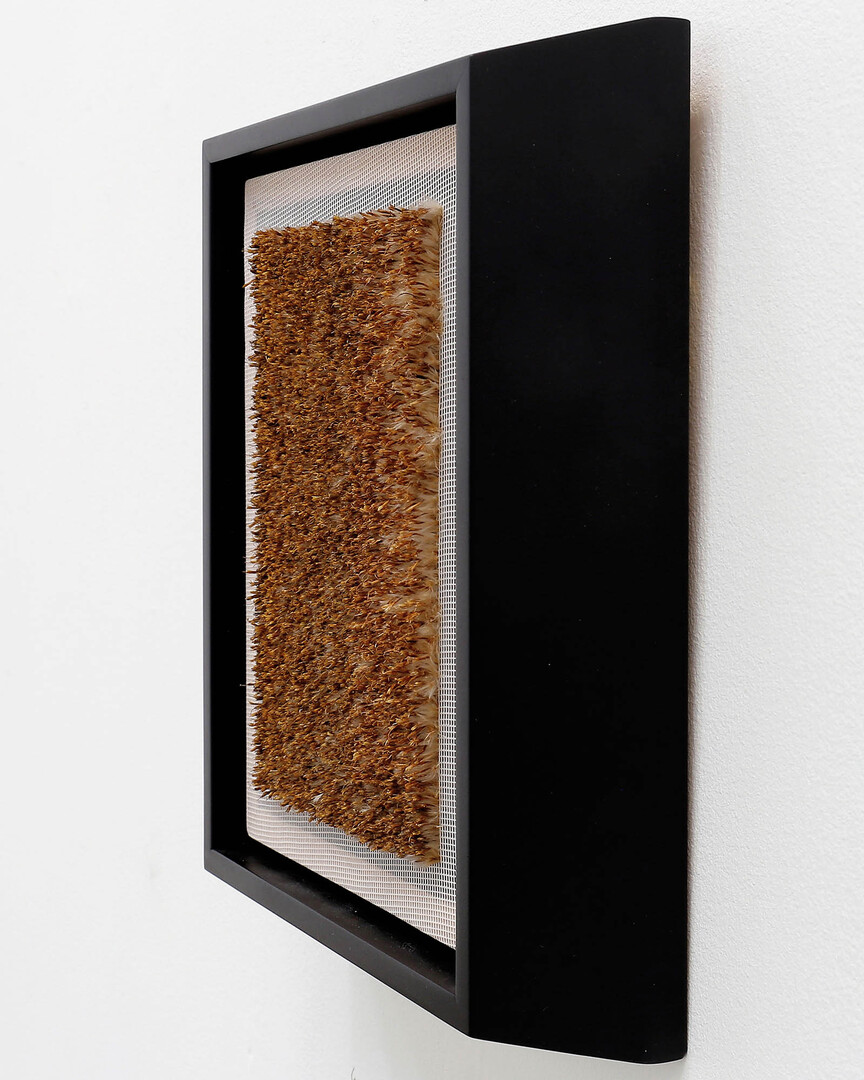
Field Study #1 - side view
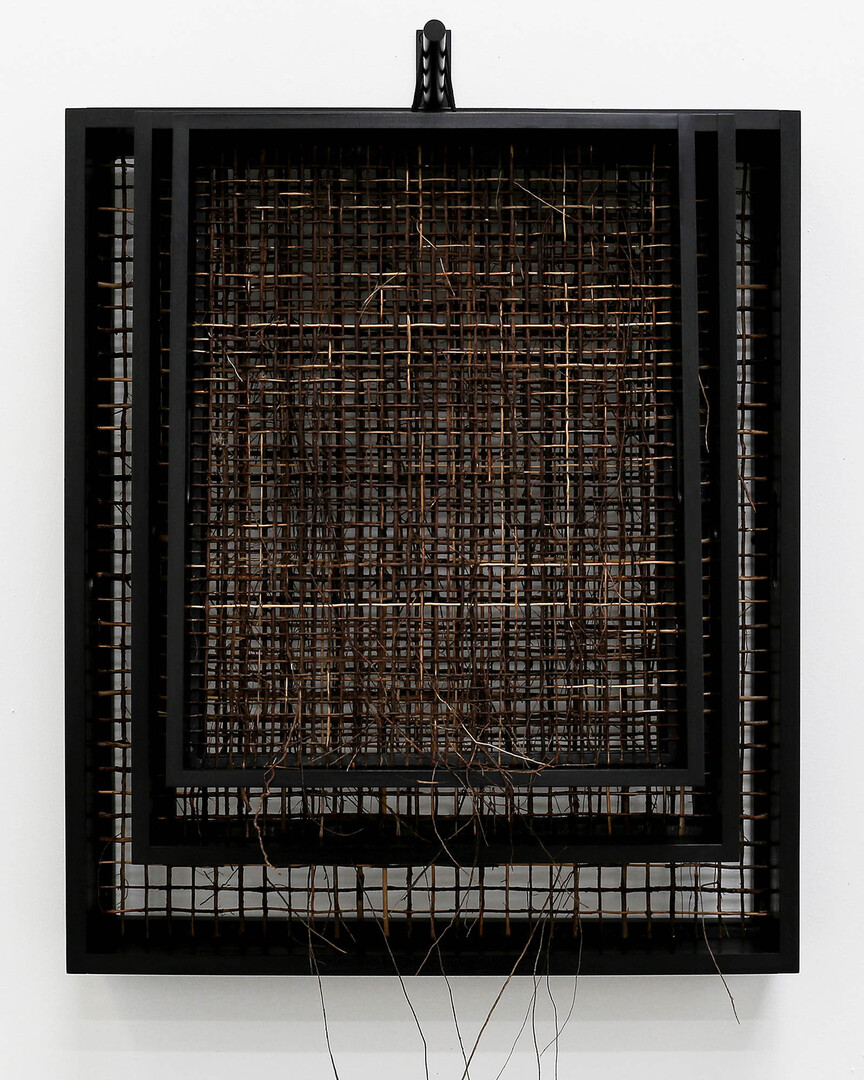
For Sieving
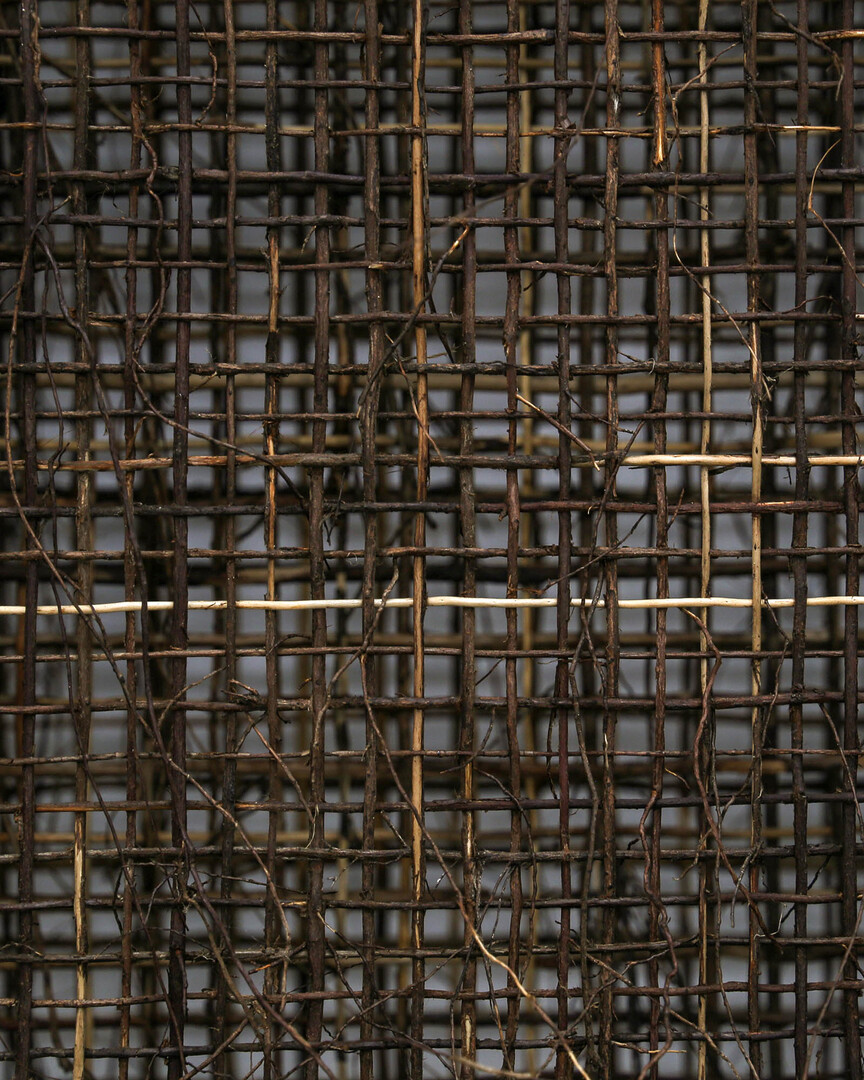
For Sieving - detail
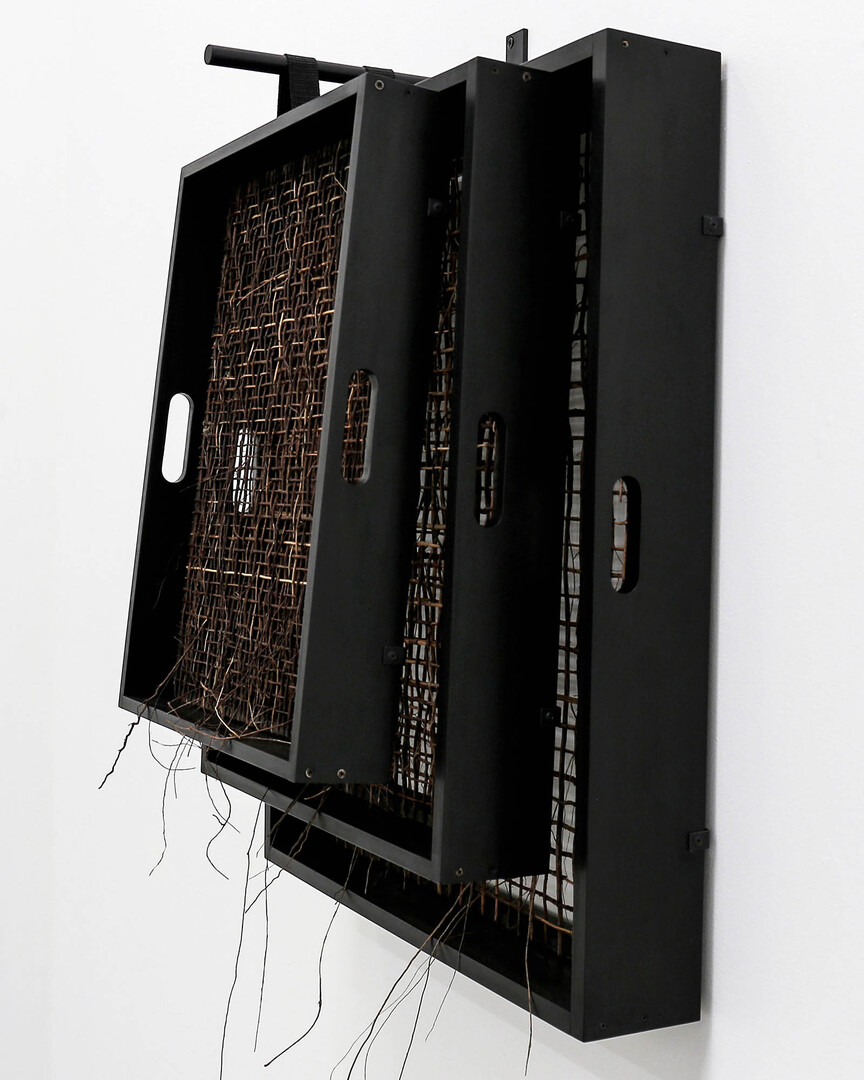
For Sieving - side view
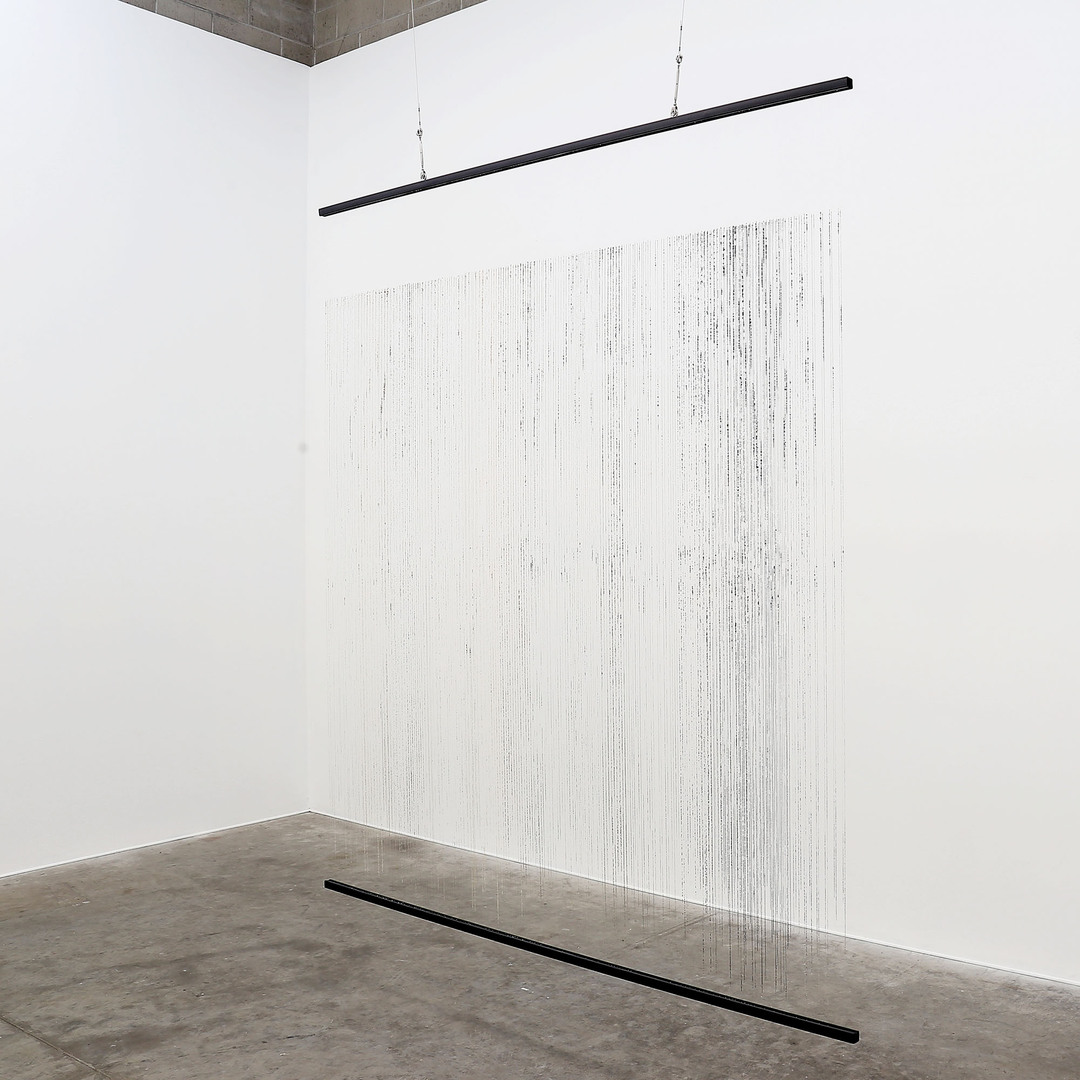
The Fall #3
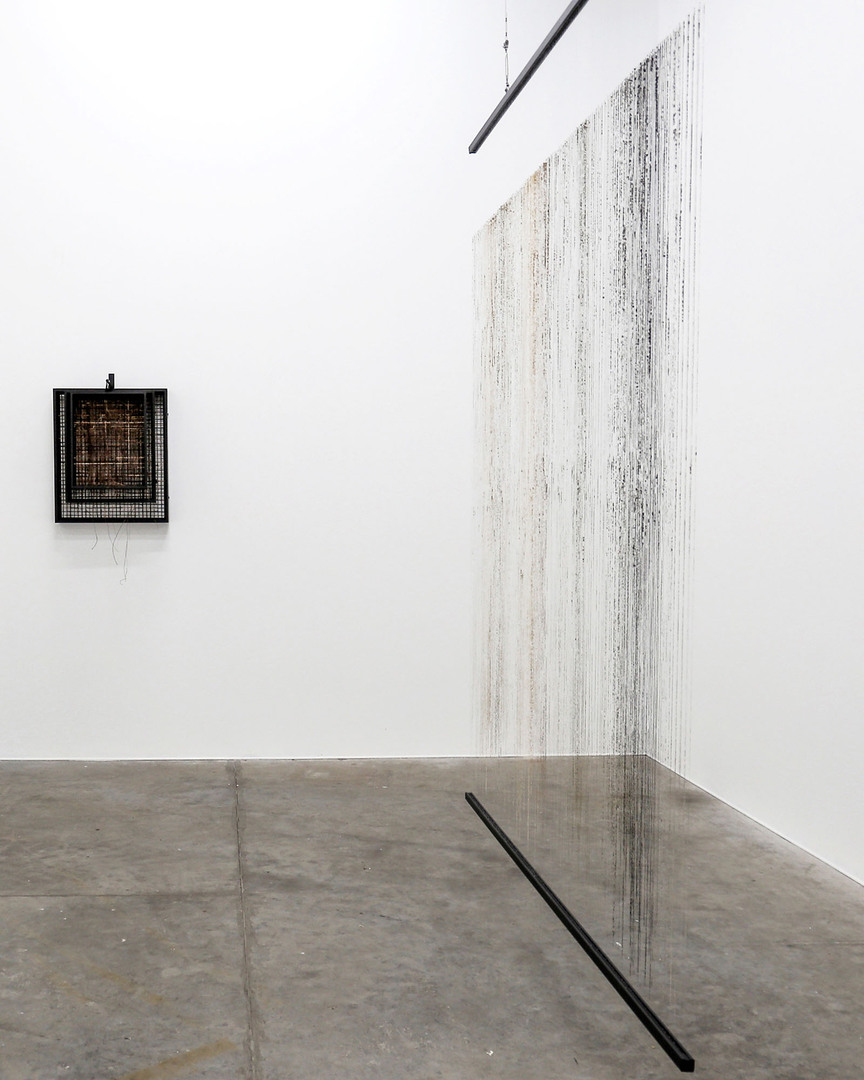
The Fall #3 - side view
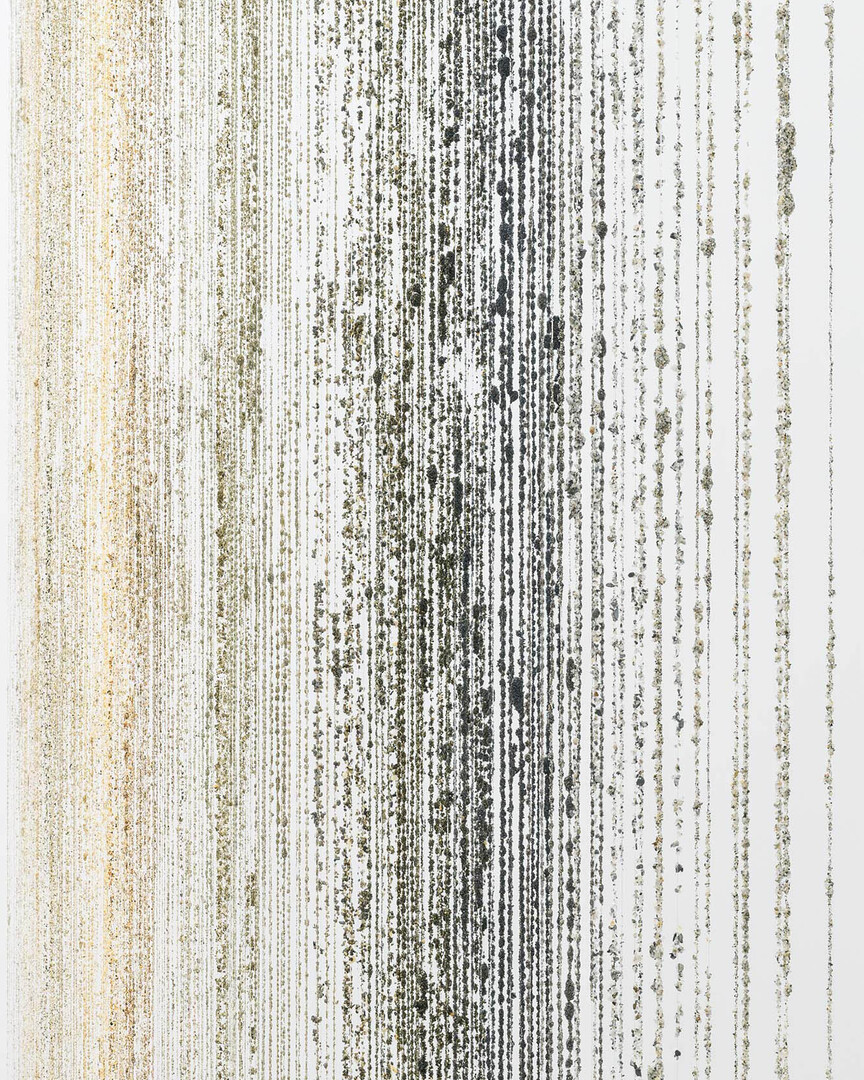
The Fall #3 - detail
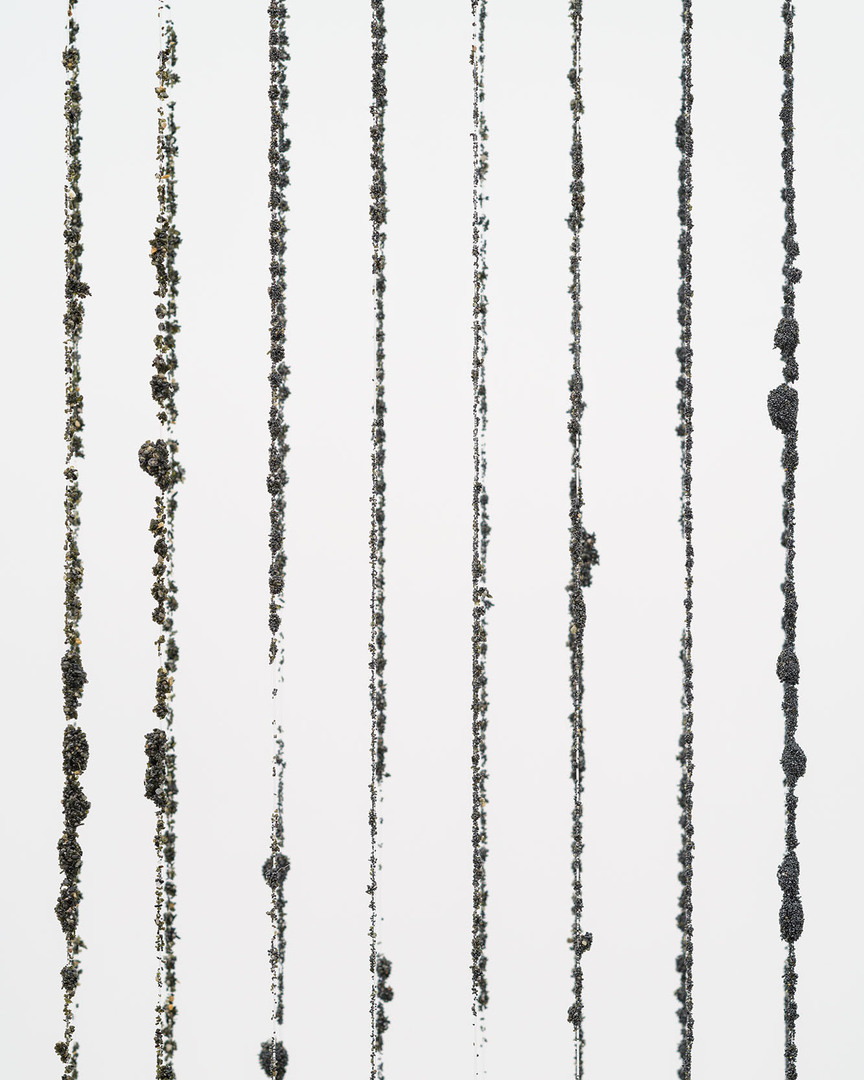
The Fall #3 - detail
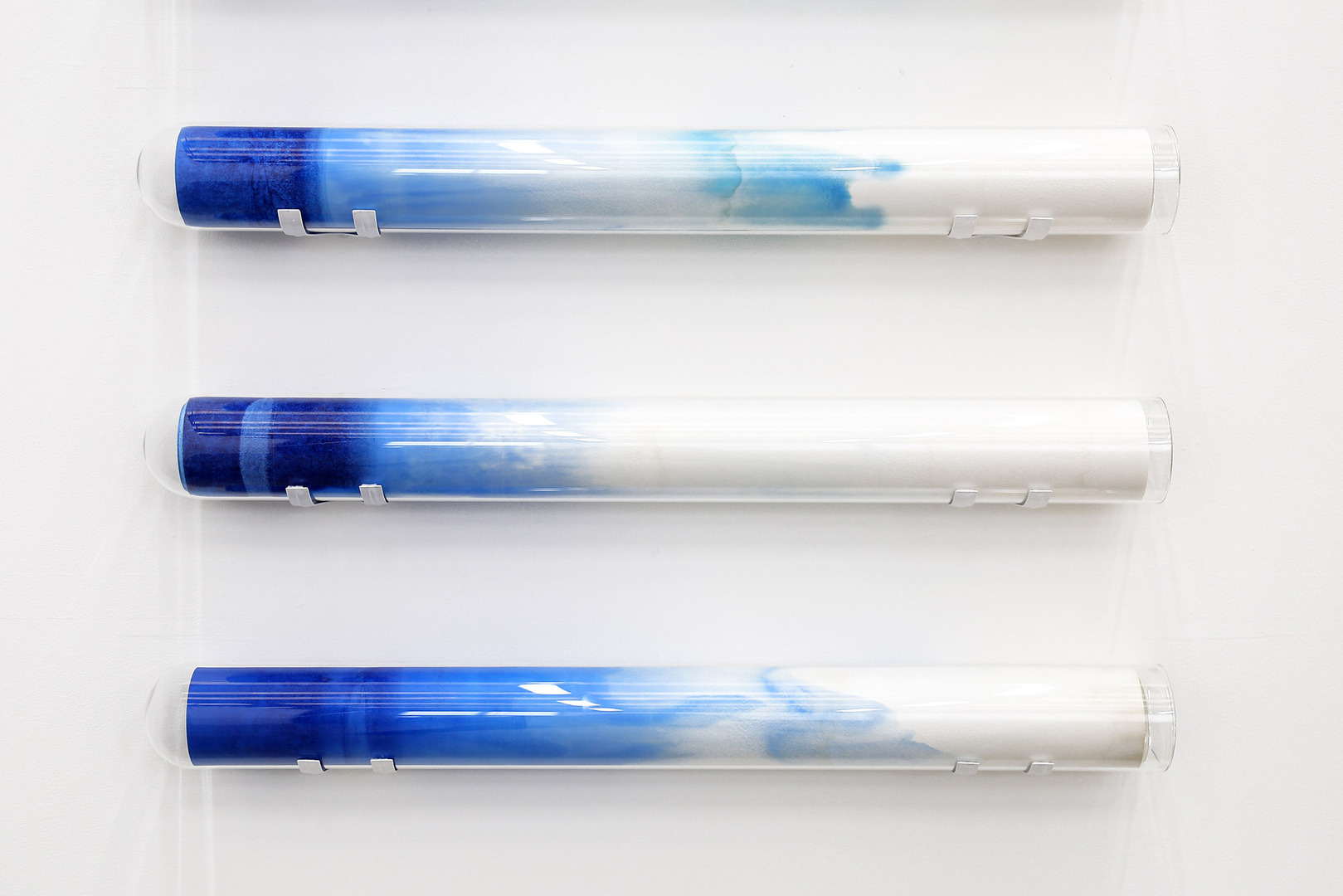
Roll of Ocean #5, #6, #7
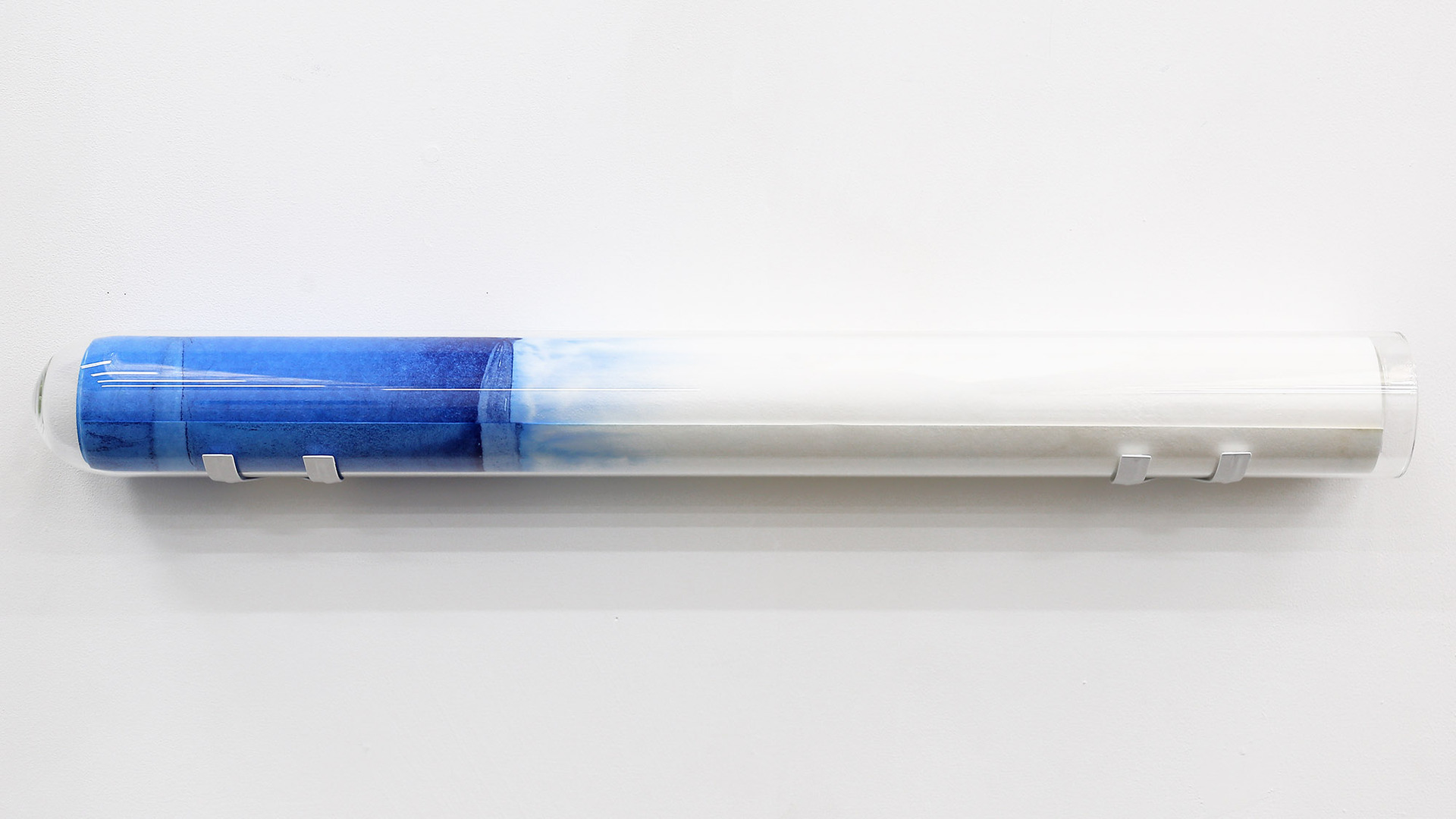
Roll of Ocean #9
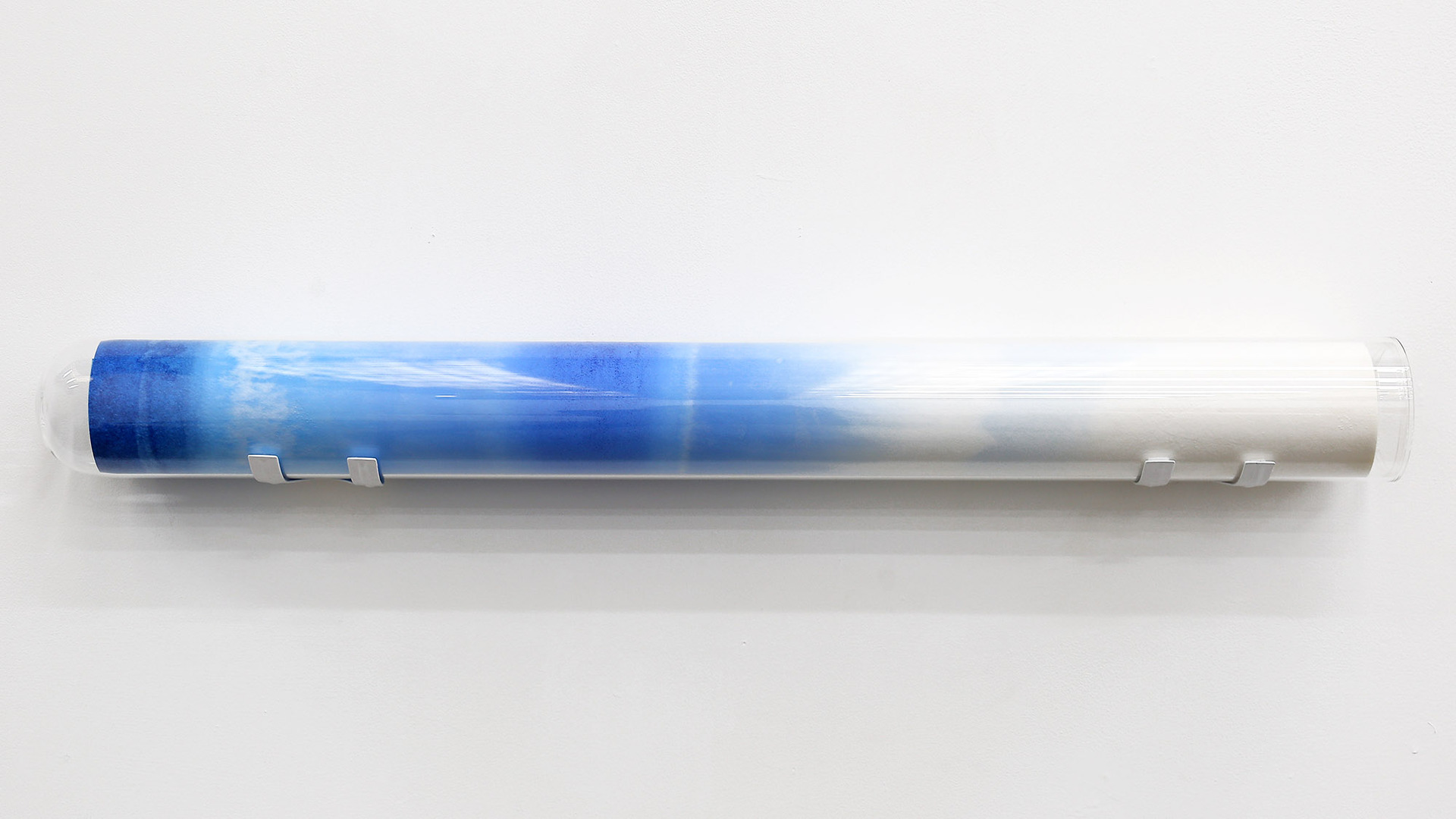
Roll of Ocean #10
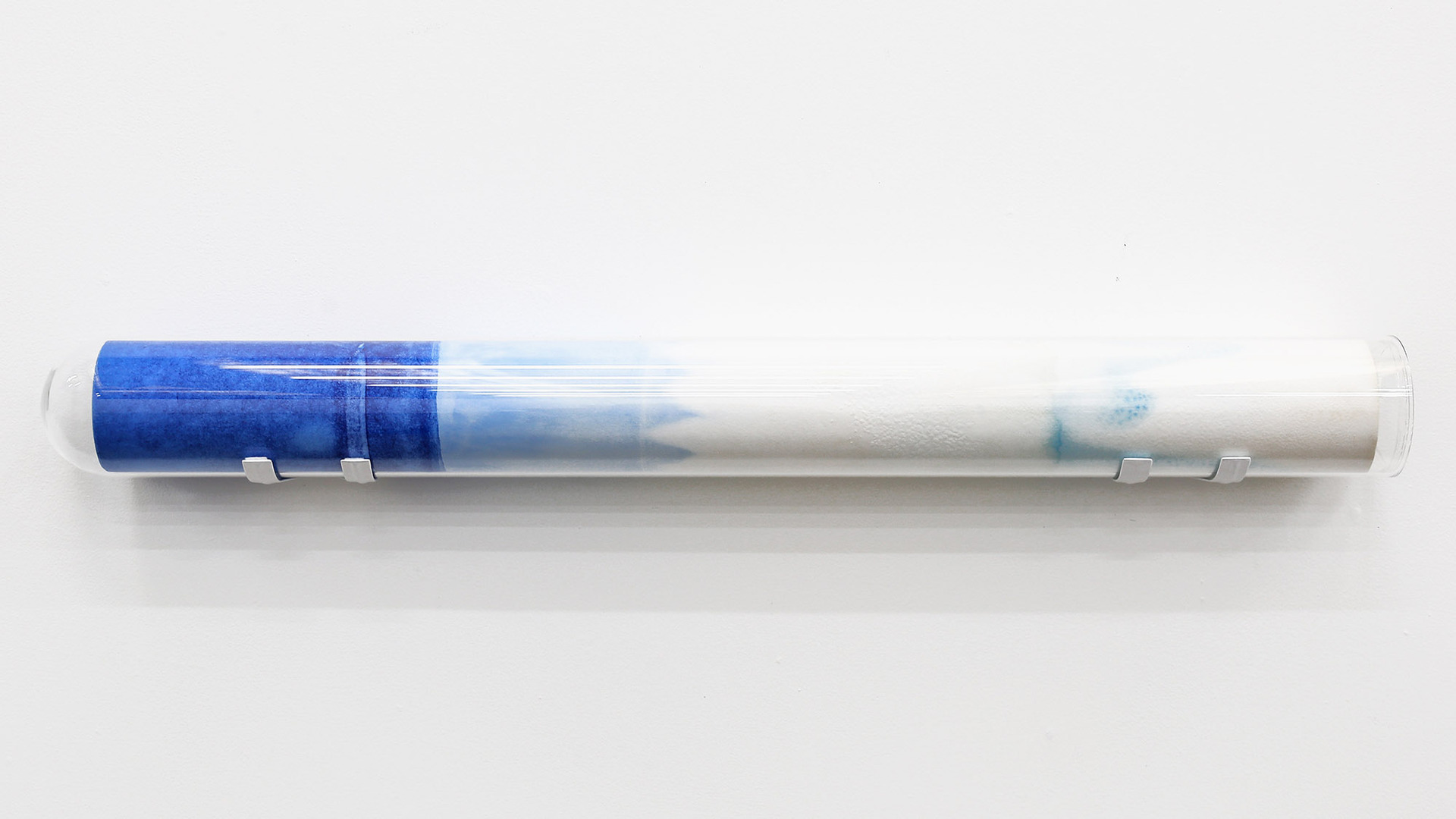
Roll of Ocean #11
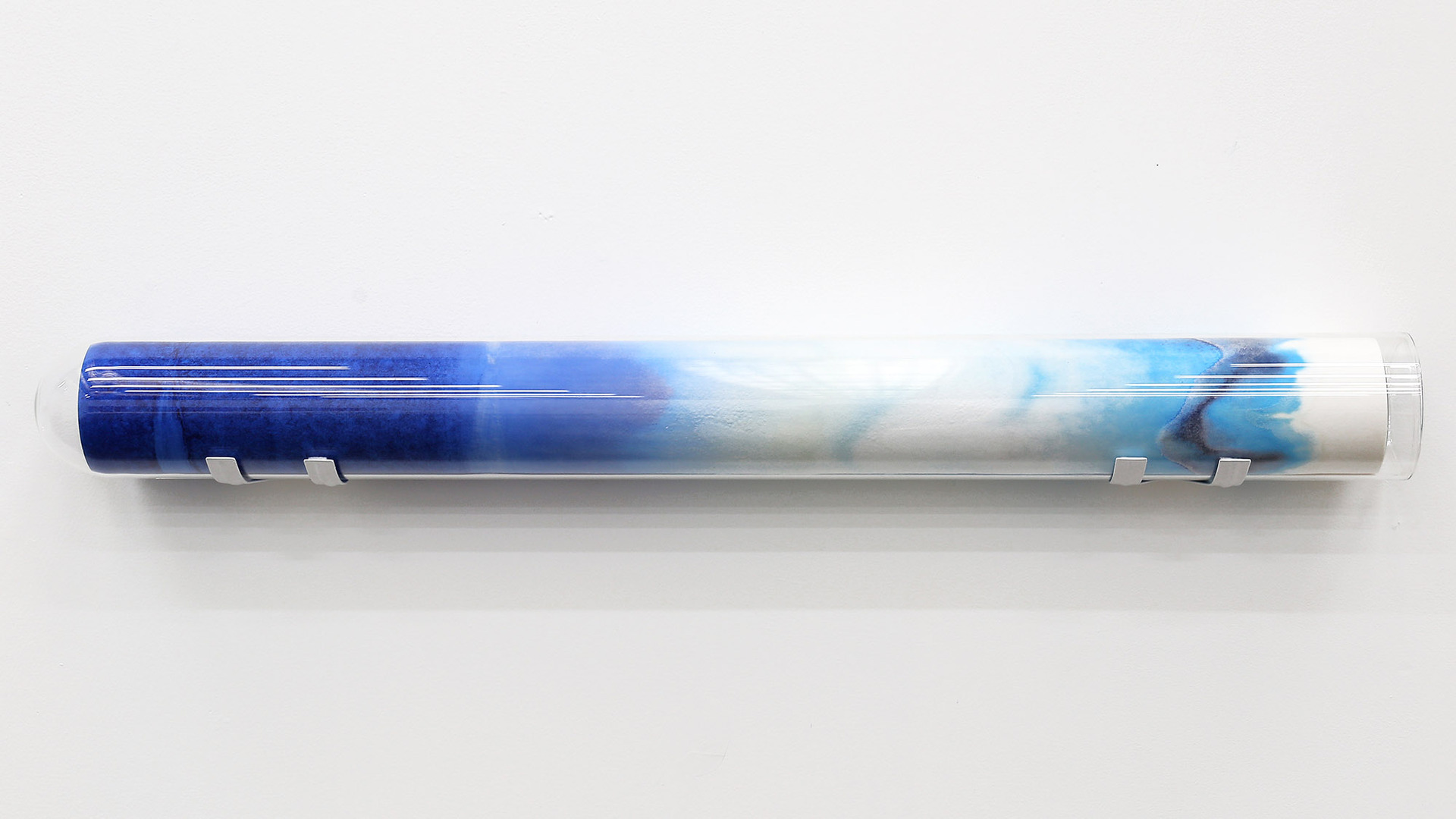
Roll of Ocean #12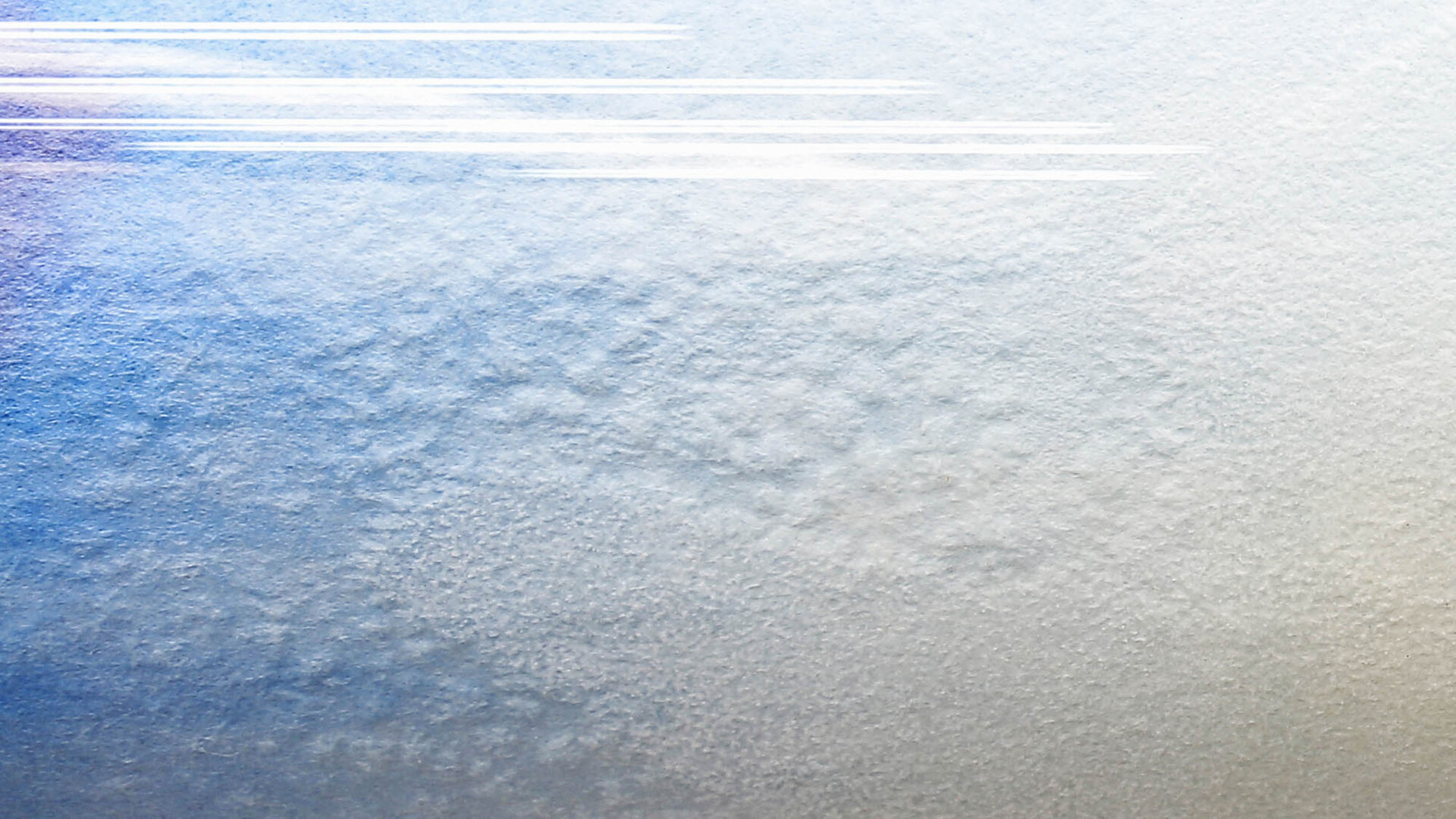
Roll of Ocean #12 - detail
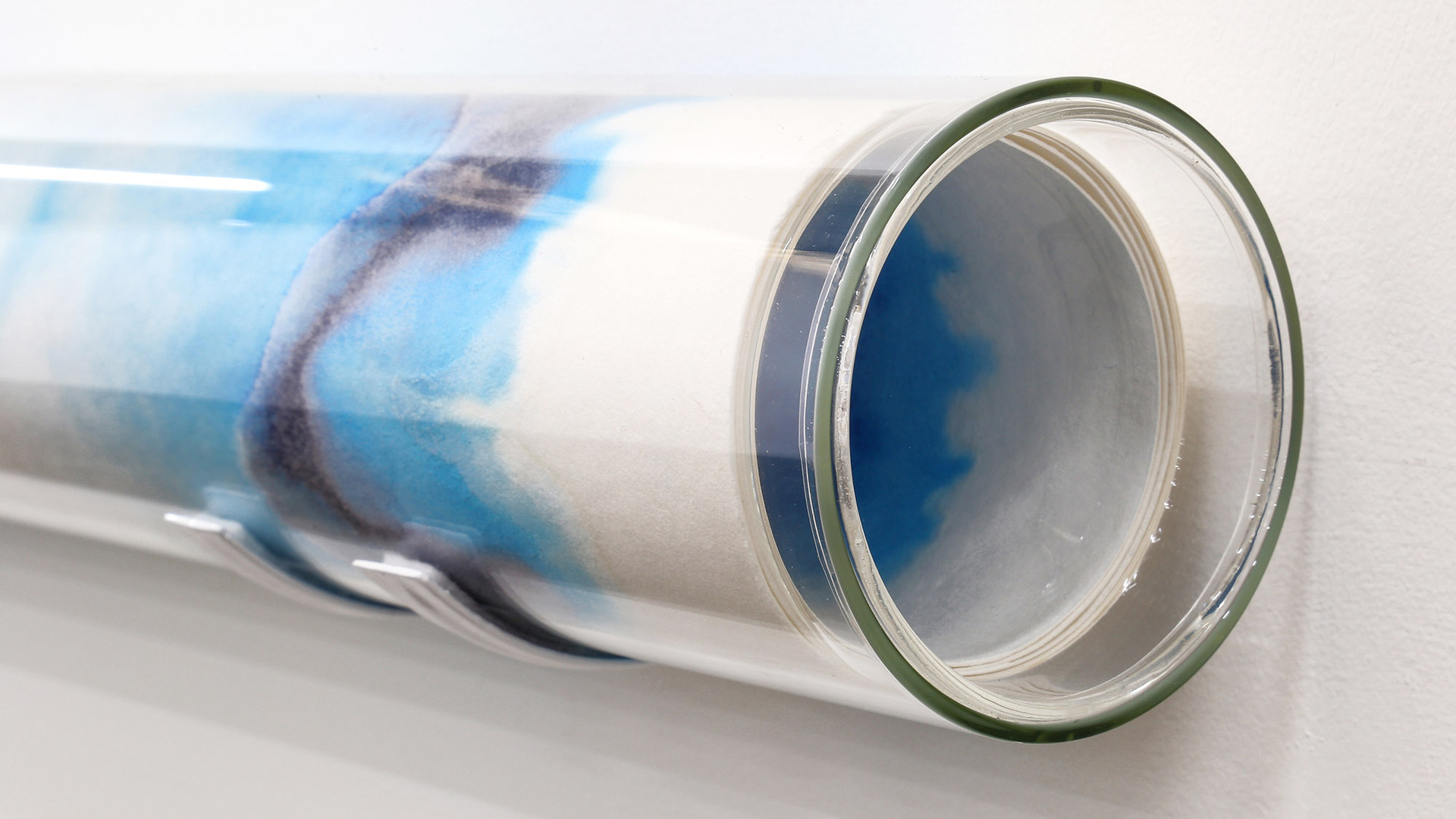
Roll of Ocean #12 - side view
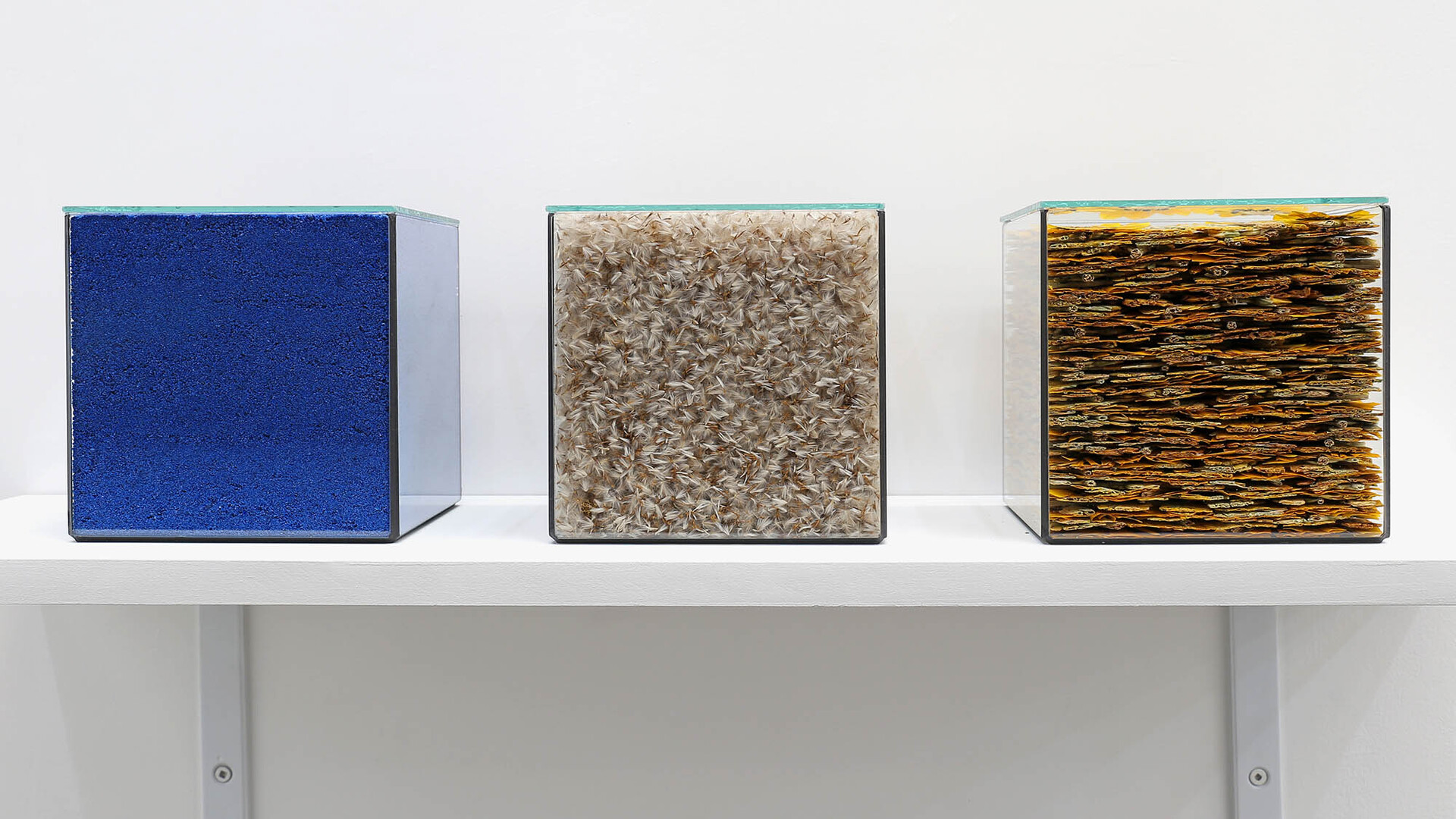
Flowers. Salt. Seed.
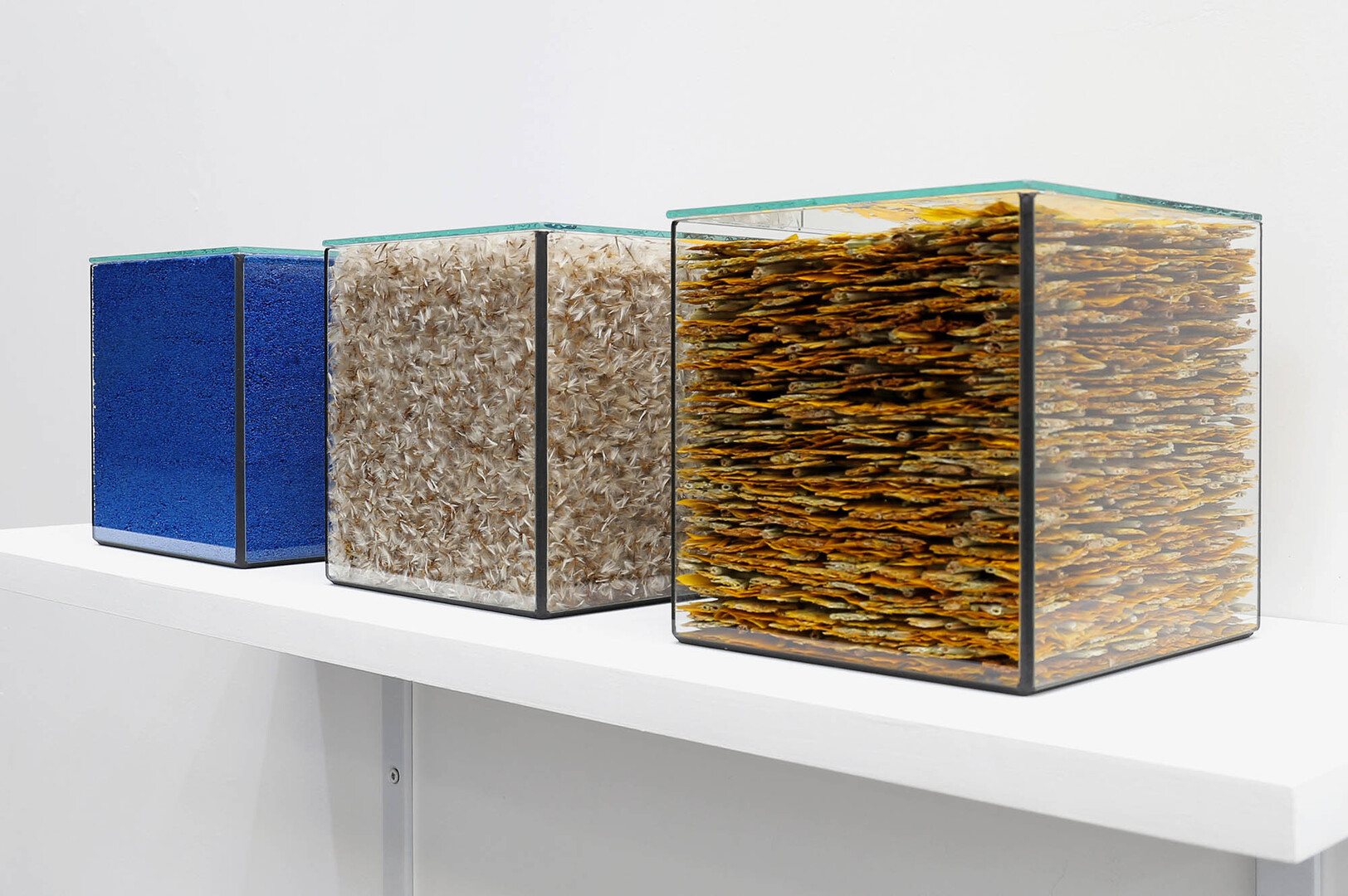
Flowers. Salt. Seed. - side view
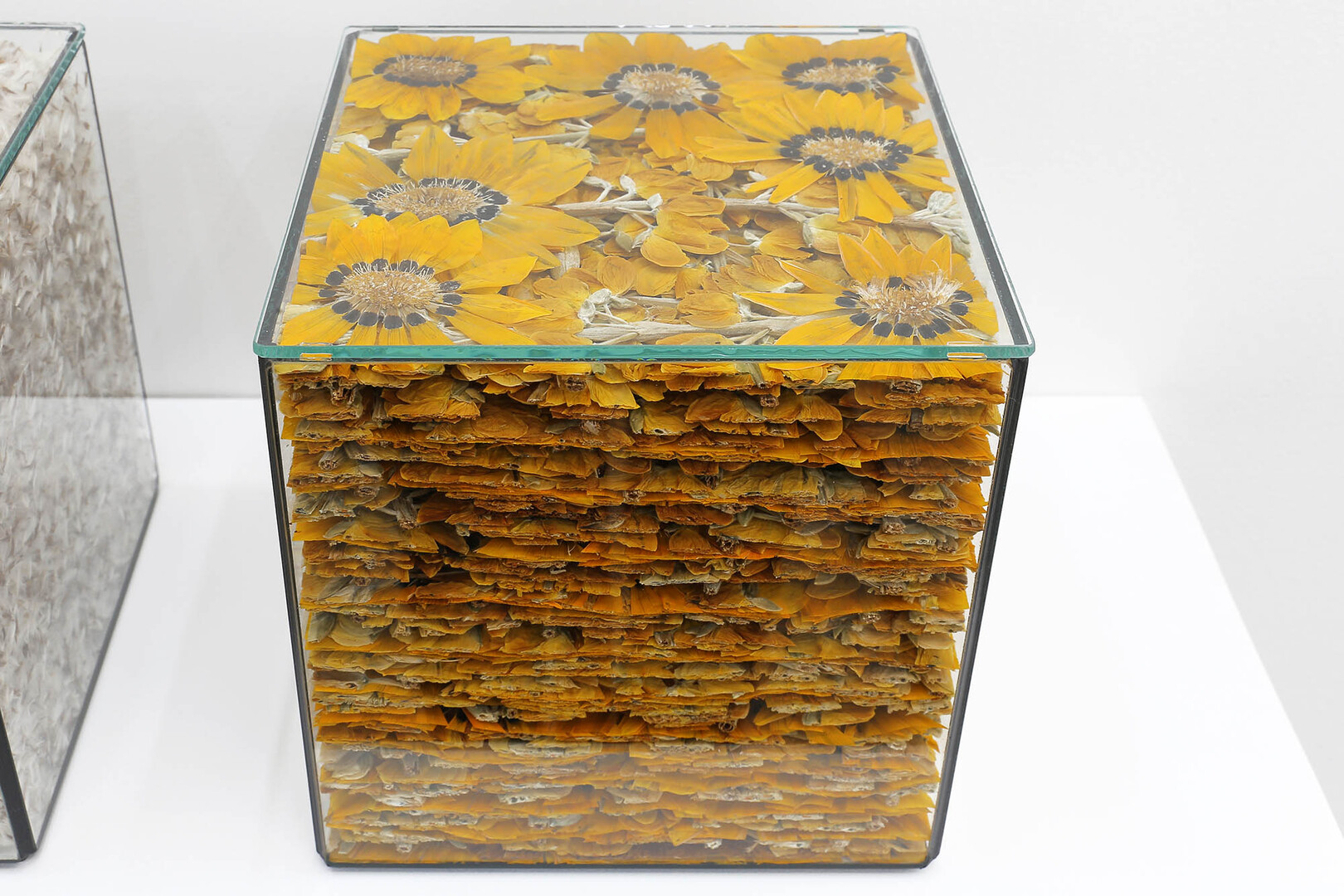
Flowers. Salt. Seed. - detail
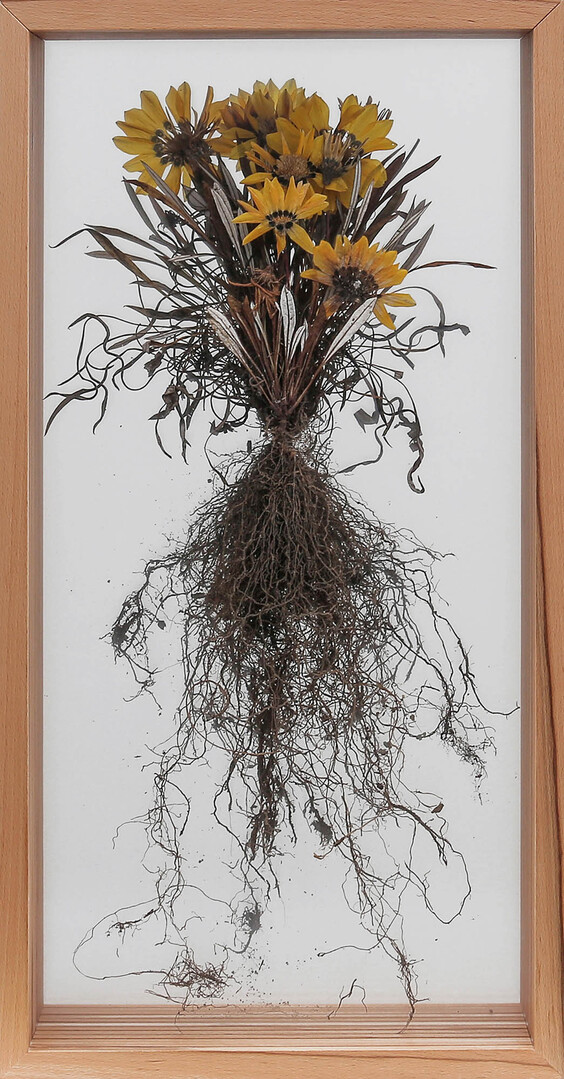 |
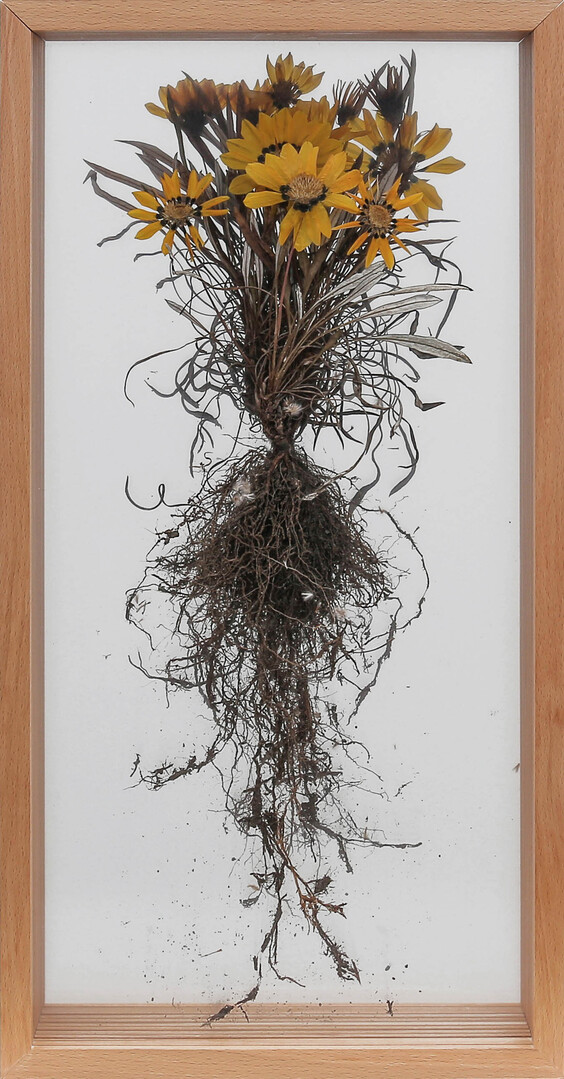 |
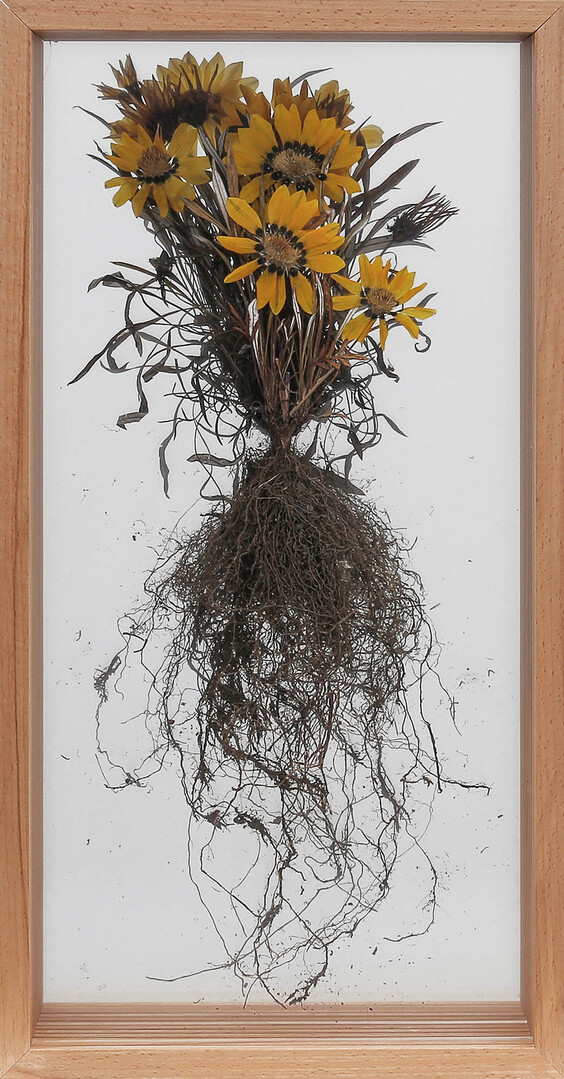 |
| Earth Binders 5 | Earth Binders 4 |
Earth Binders 3 |
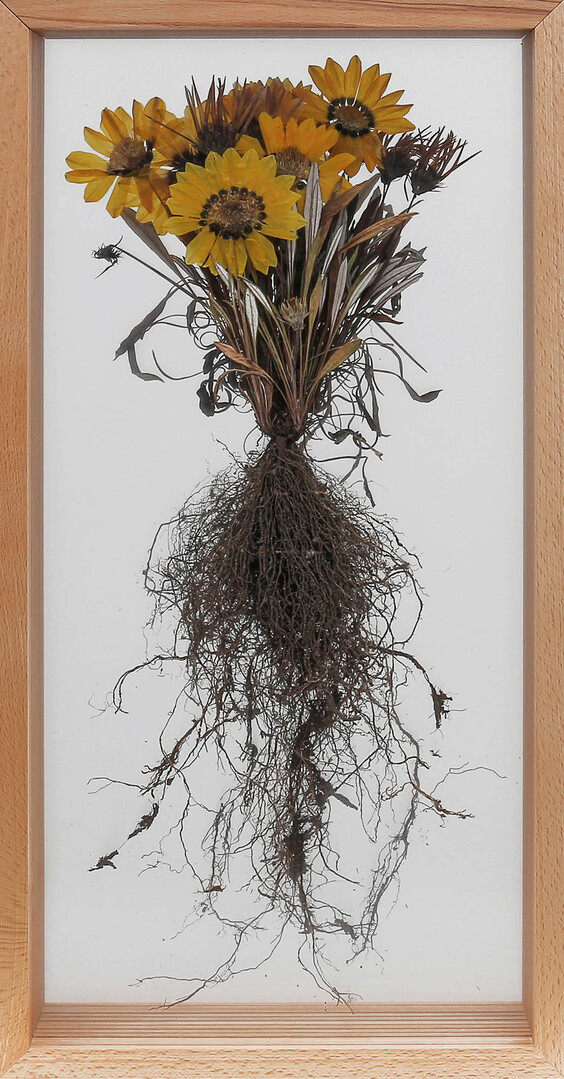 |
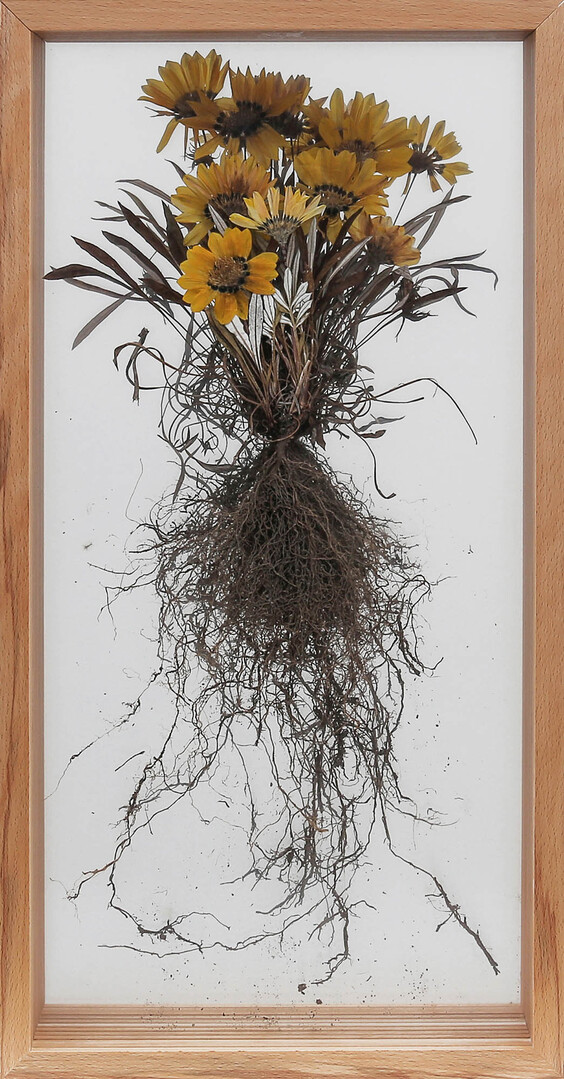 |
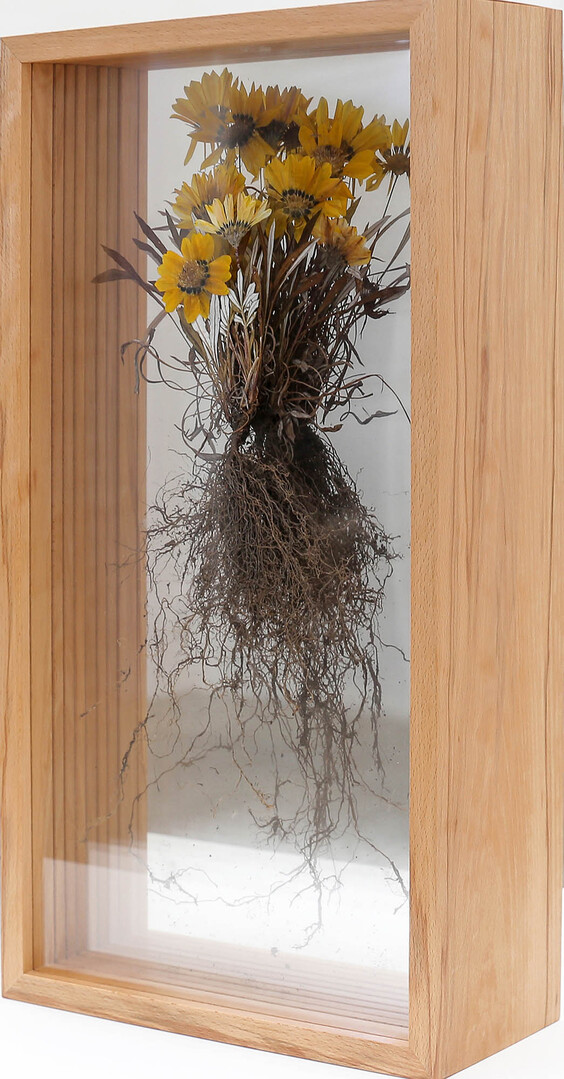 |
| Earth Binders 2 | Earth Binders 1 |
#1 - side view |
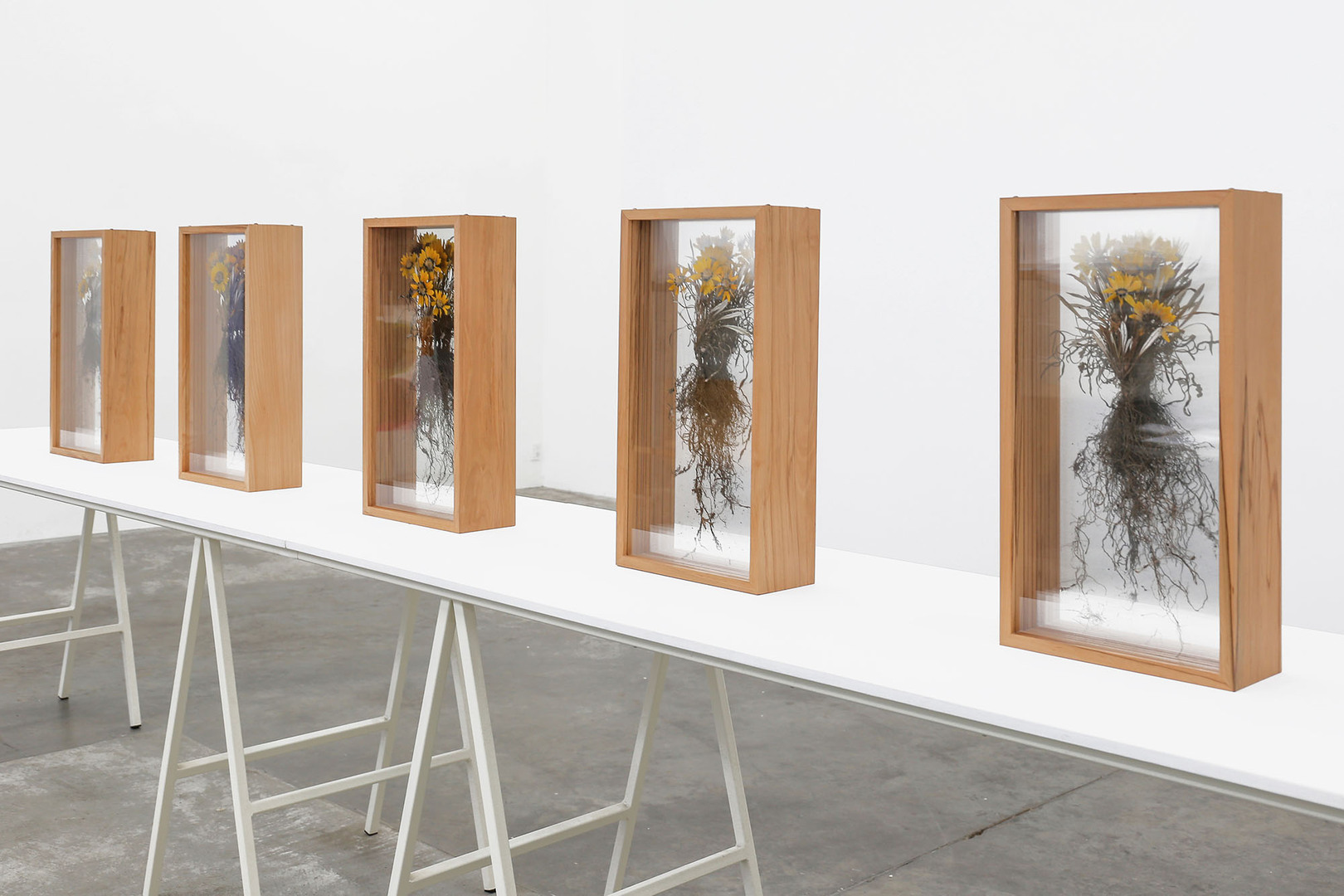
Earth Binders #1 - 5
Installing...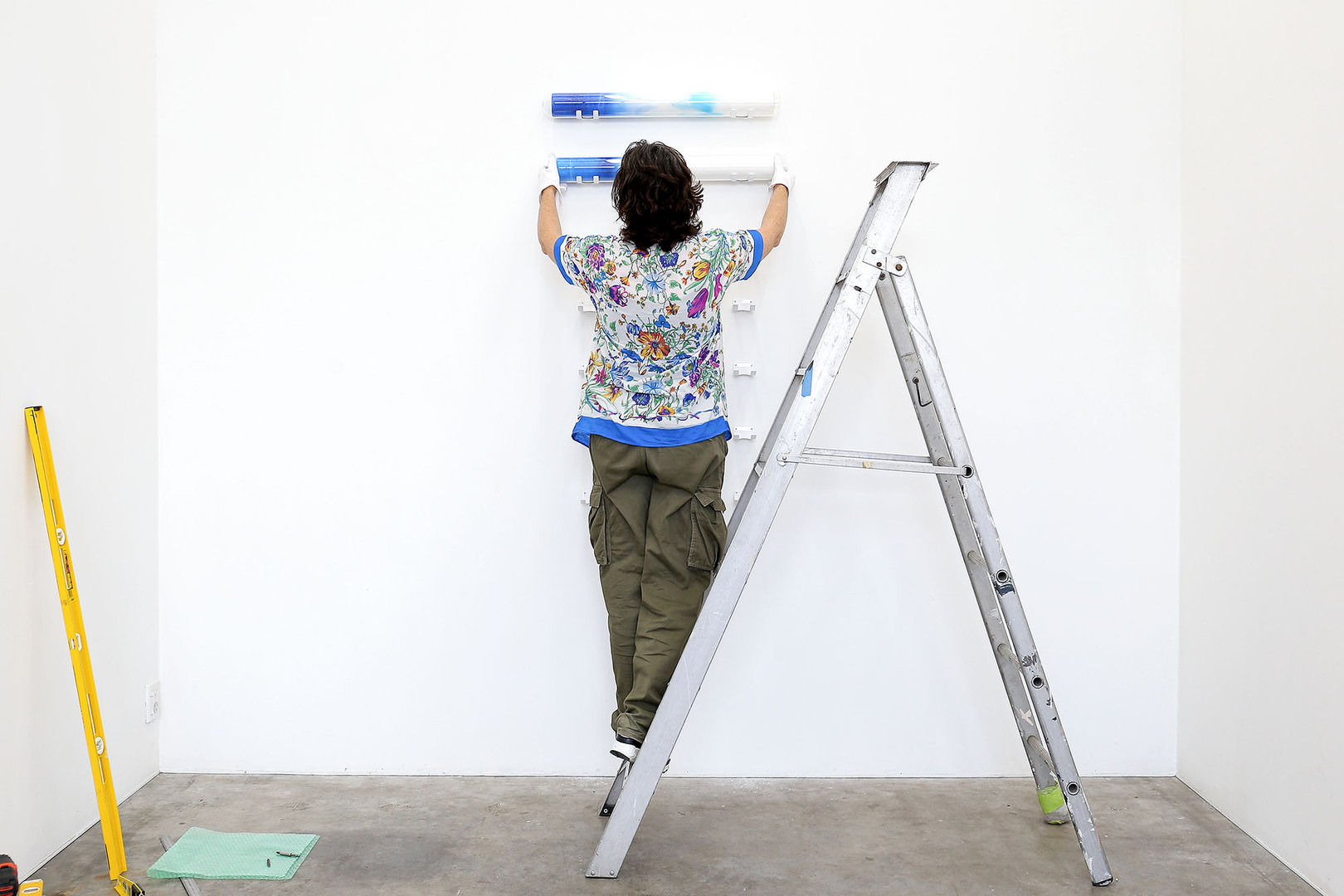
Melissa installing the work Roll of Ocean #1 - 7
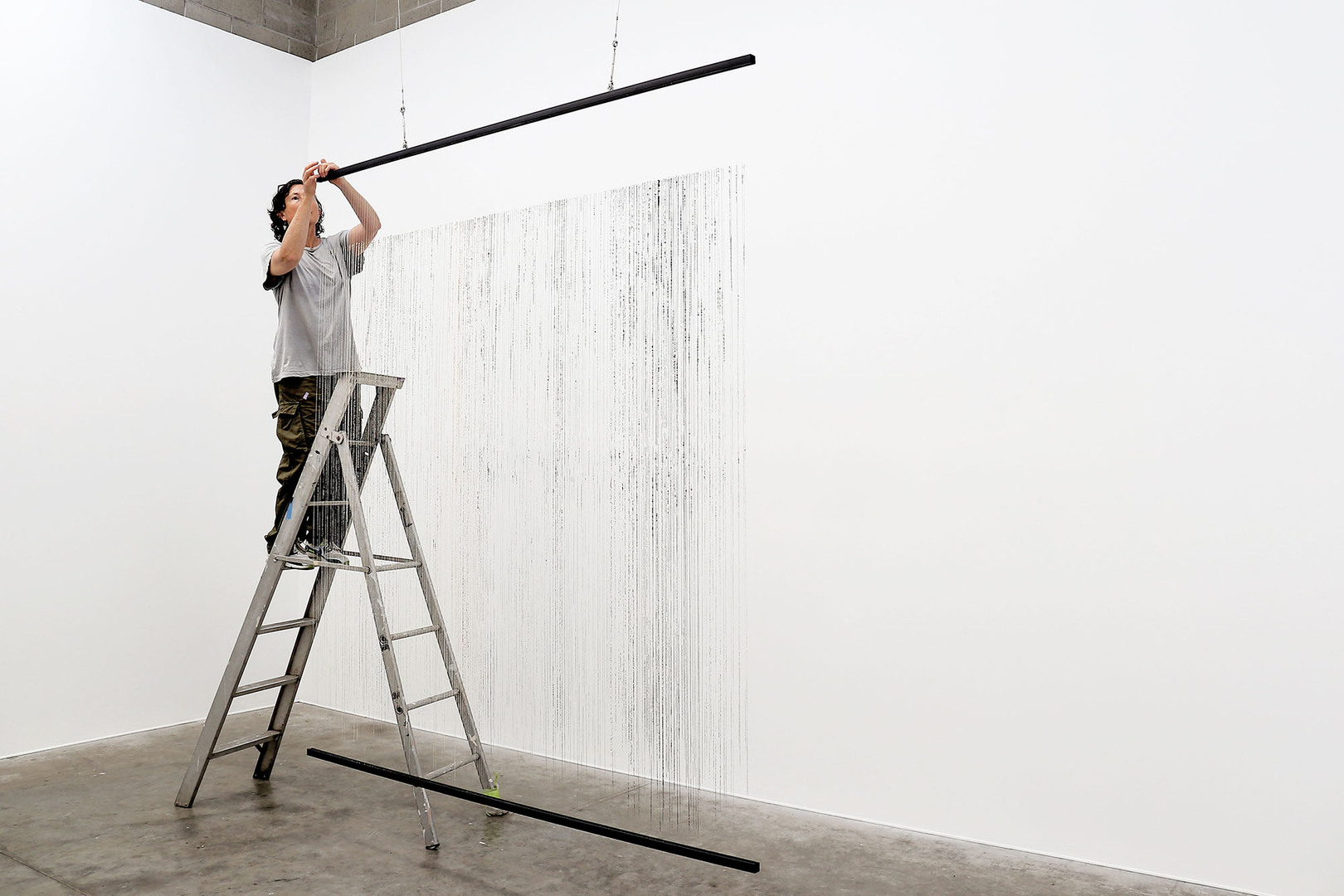
Final tweaks to the suspended work The Fall #3
2024
coastal flower pollens (Ōtautahi east): 'Daisy May', ‘Moroccan Daisy’, Capeweed Daisy, Boneseed, Ice plant, Gazania, Dandelion, Lupin, Irish Rose, Wild Turnip or Bargeman's Cabbage, tissue, Fabriano paper
600 x 600 x 30mm
Exhibited in
vehicles for the unsung
2024
coastal flower pollens (Ōtautahi east): 'Daisy May', ‘Moroccan Daisy’, Capeweed Daisy, Boneseed, Ice plant, Gazania, Dandelion, Lupin, Irish Rose, Wild Turnip or Bargeman's Cabbage, tissue, Fabriano paper
600 x 600 x 30mm
Exhibited in
vehicles for the unsung
2021-24
Gazania New Day plants x7, dirt, dust, European Beech, Perspex, glass
630 x 330 x 150mm
Exhibited in
vehicles for the unsung
2021-24
Gazania New Day plants x7, dirt, dust, European Beech, Perspex, glass
630 x 330 x 150mm
Exhibited in
vehicles for the unsung
2021-24
Gazania New Day plants x7, dirt, dust, European Beech, Perspex, glass
630 x 330 x 150mm
Exhibited in
vehicles for the unsung
2021-24
Gazania New Day plants x7, dirt, dust, European Beech, Perspex, glass
630 x 330 x 150mm
Exhibited in
vehicles for the unsung
2021-24
Gazania New Day plants x7, dirt, dust, European Beech, Perspex, glass
630 x 330 x 150mm
Exhibited in
vehicles for the unsung
2021-24
blotting paper, water tracing dye, inks, glass, Pacific Ocean 43.516047o S,172.735867o E
760 length x 80 diameter
Exhibited in
vehicles for the unsung
2021-24
blotting paper, water tracing dye, inks, glass, Pacific Ocean 43.516047o S,172.735867o E
760 length x 80 diameter
Exhibited in
vehicles for the unsung
2021-24
blotting paper, water tracing dye, inks, glass, Pacific Ocean 43.516047o S,172.735867o E
760 length x 80 diameter
Exhibited in
vehicles for the unsung
2021-24
blotting paper, water tracing dye, inks, glass, Pacific Ocean 43.516047o S,172.735867o E
760 length x 80 diameter
Exhibited in
vehicles for the unsung
2021-24
blotting paper, water tracing dye, inks, glass, Pacific Ocean 43.516047o S,172.735867o E
760 length x 80 diameter
Exhibited in
vehicles for the unsung
2024
salt (Pacific Ocean 43.516047o S,172.735867o E), water tracing dye, coastal flowers (Lupin, Gazania New Day), seeds (Gazania New Day), glass.
Each cube 150 x 150 x 150mm
Exhibited in
vehicles for the unsung
2021-24
roots from drowning pine trees (Ihutai Avon-Heathcote Estuary), steel, pine wood, webbing, steel bracket
700 x 600 x 250mm
Exhibited in
vehicles for the unsung
2024
seeds (Gazania New Day), mesh, European Beech
250 x 210 x 50mm
Exhibited in
vehicles for the unsung
2021-24
Participatory Project: sands (x36 samples from prone Aotearoa locations), nylon, steel, aluminium, wood
2300 x 2050 x 25mm
Exhibited in
vehicles for the unsung